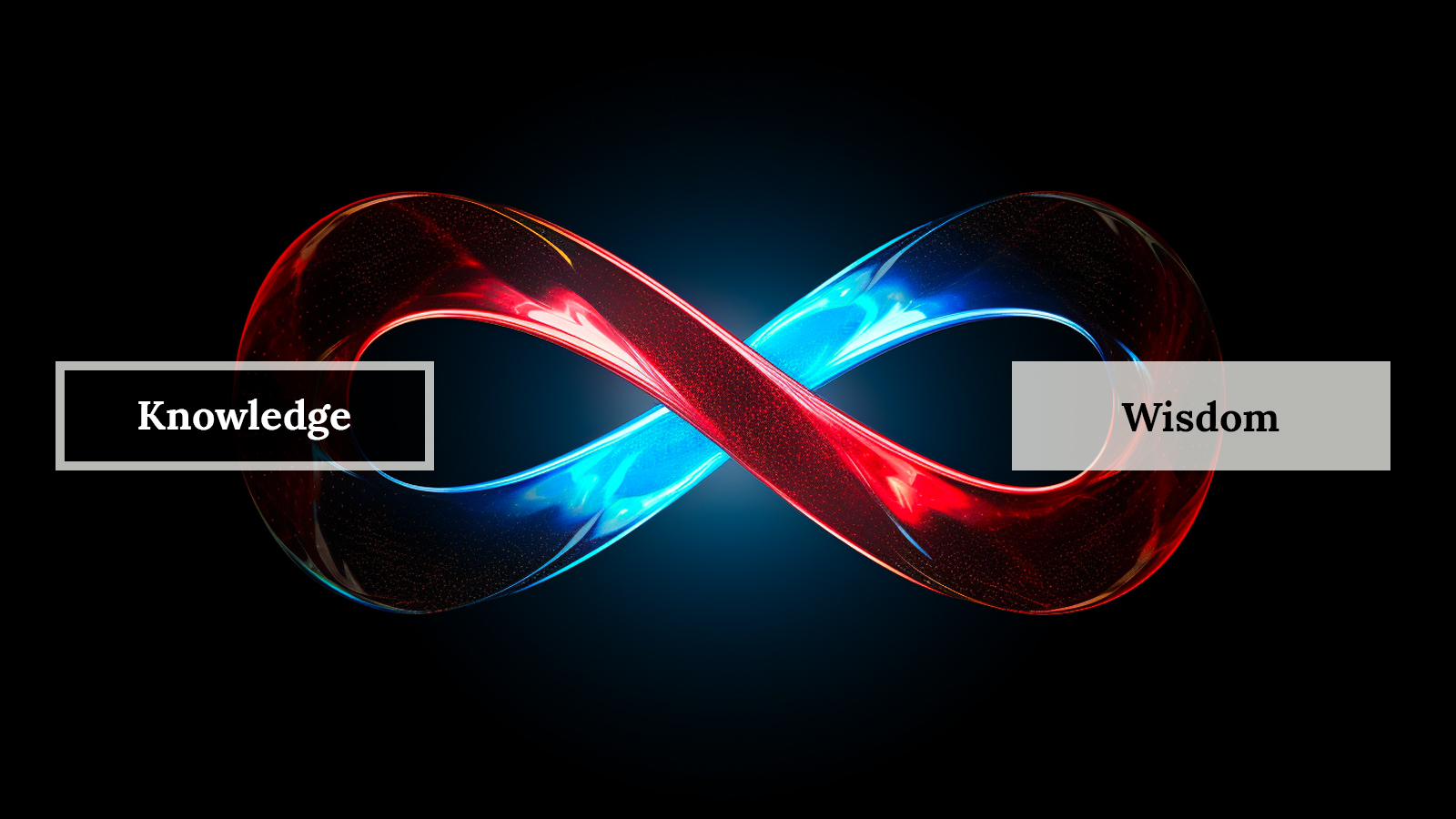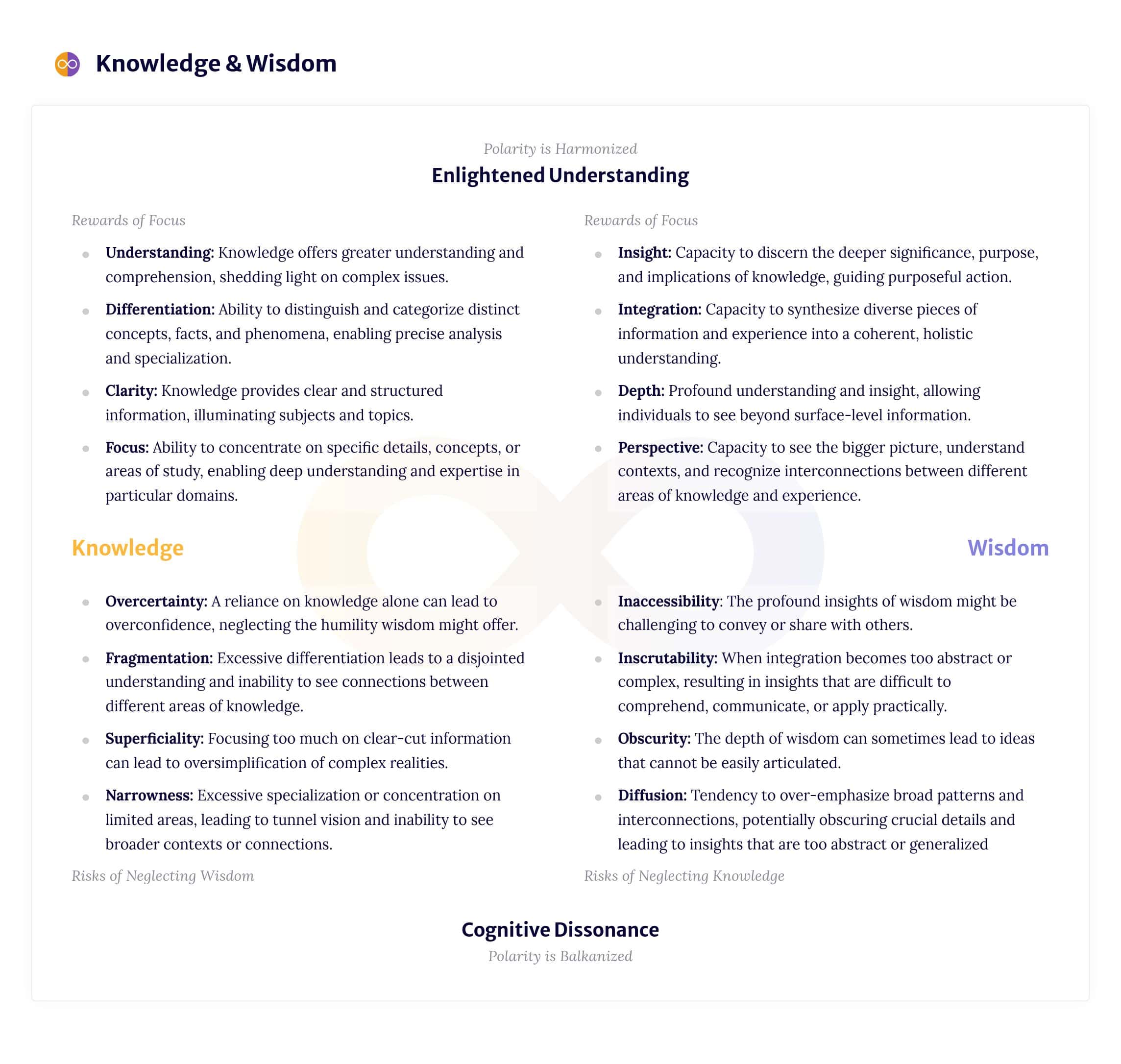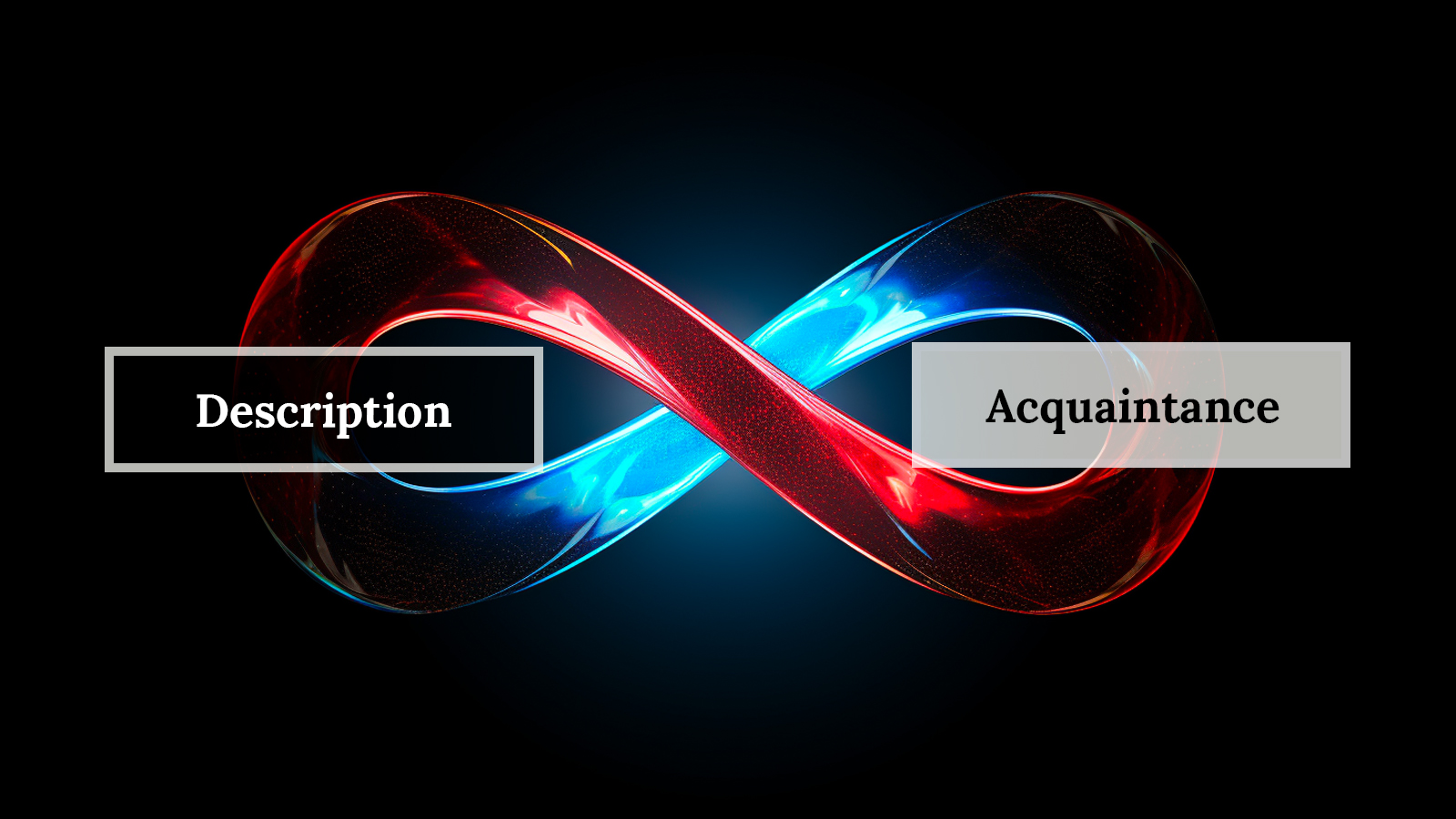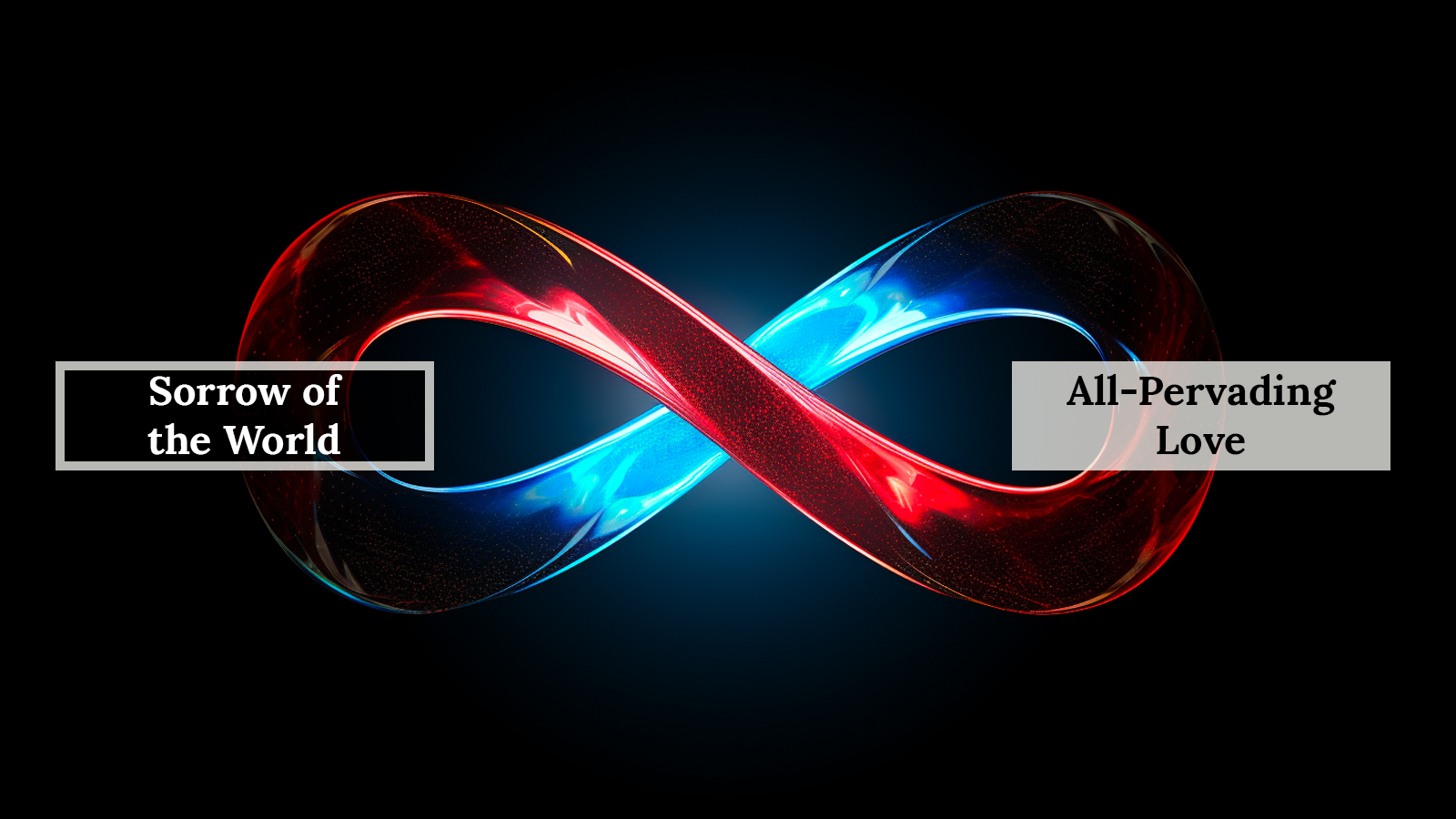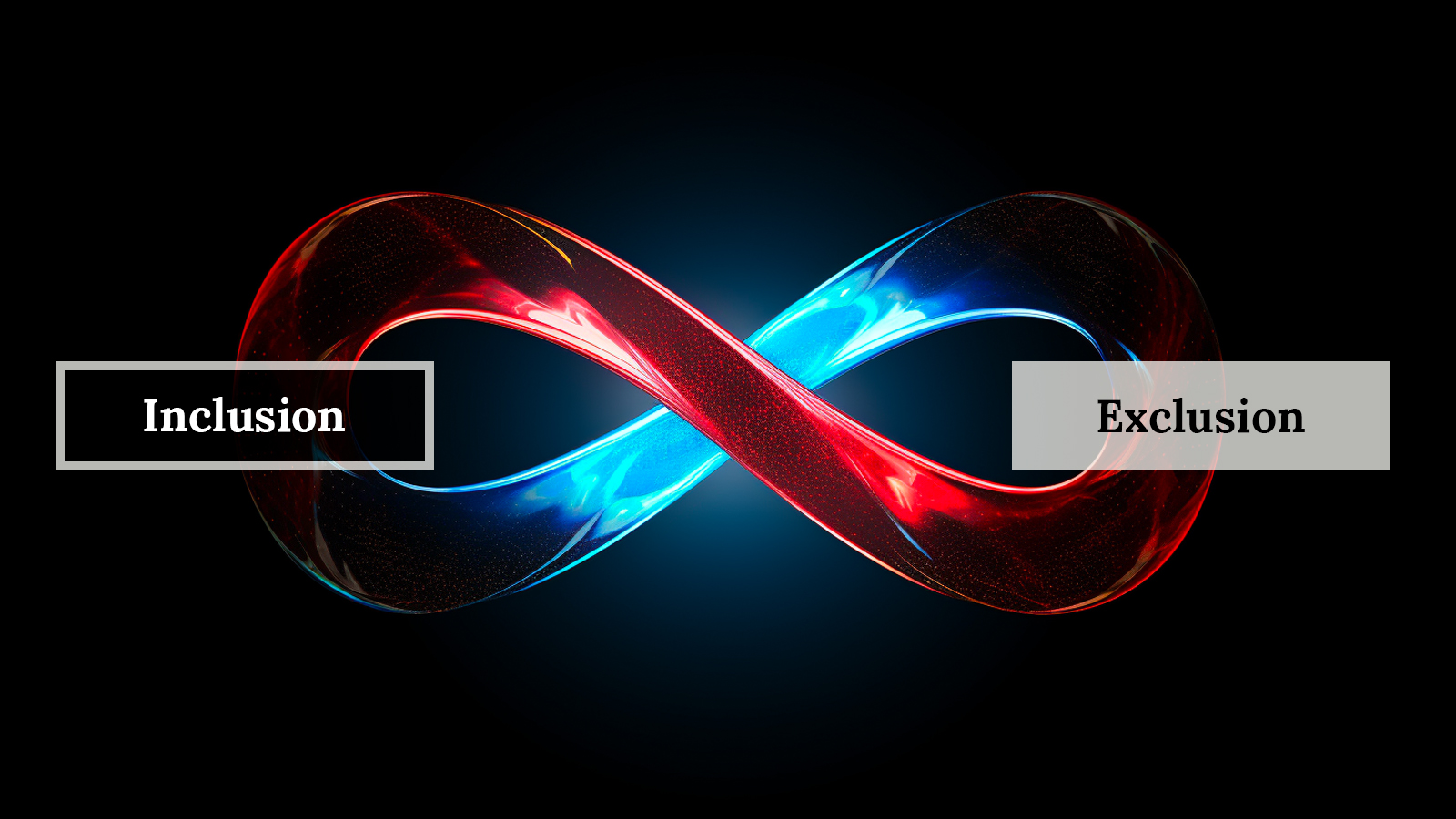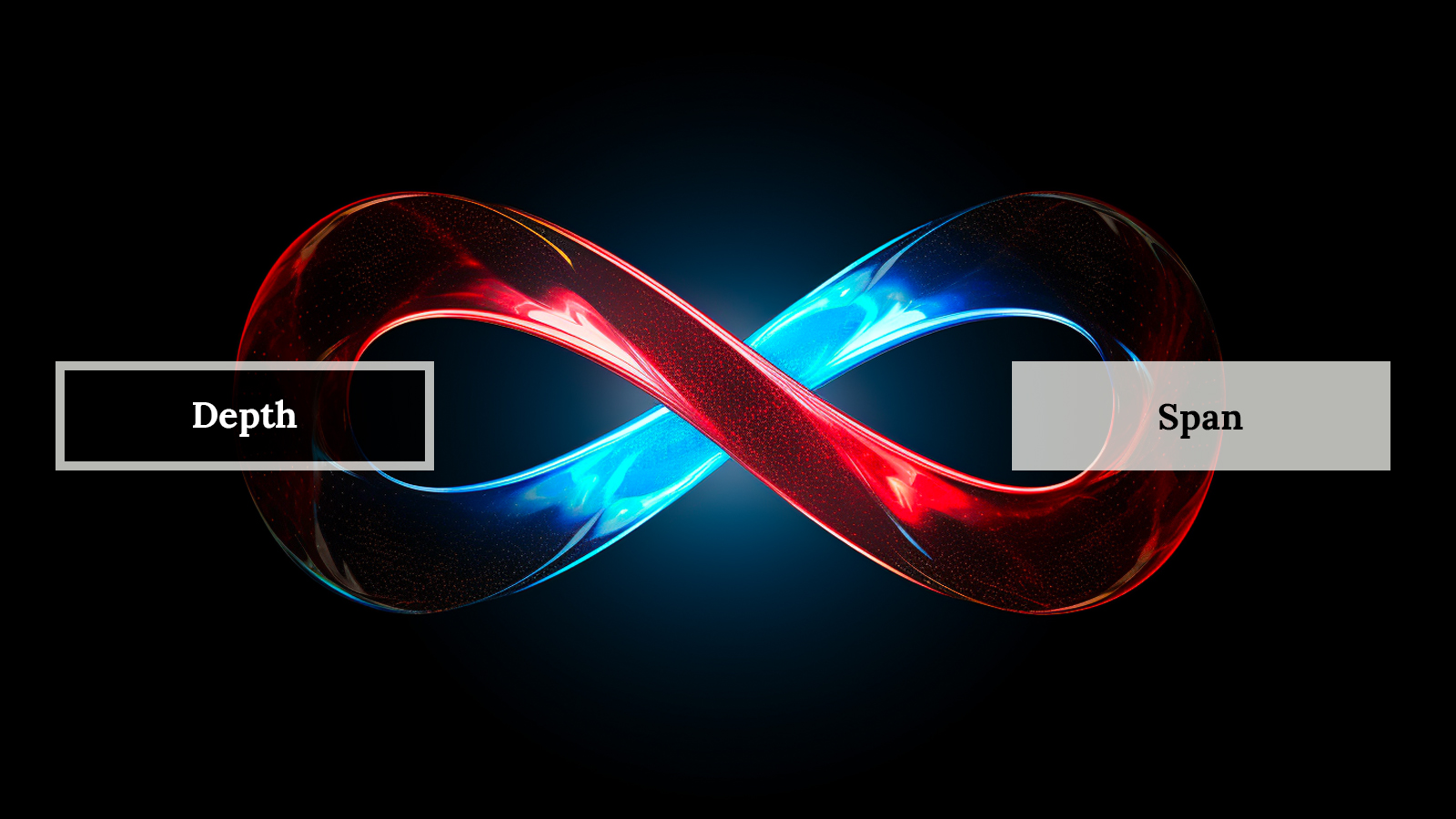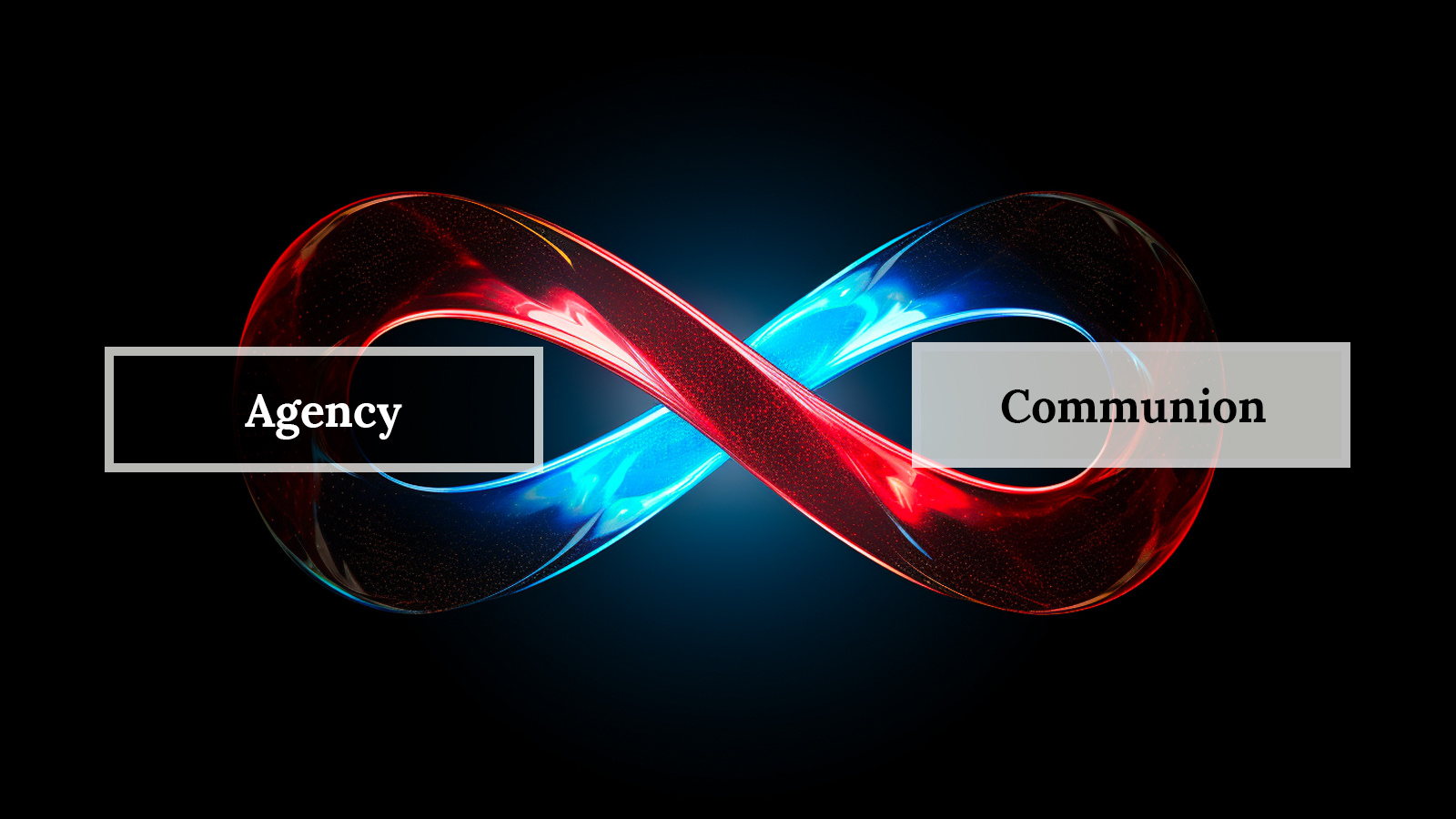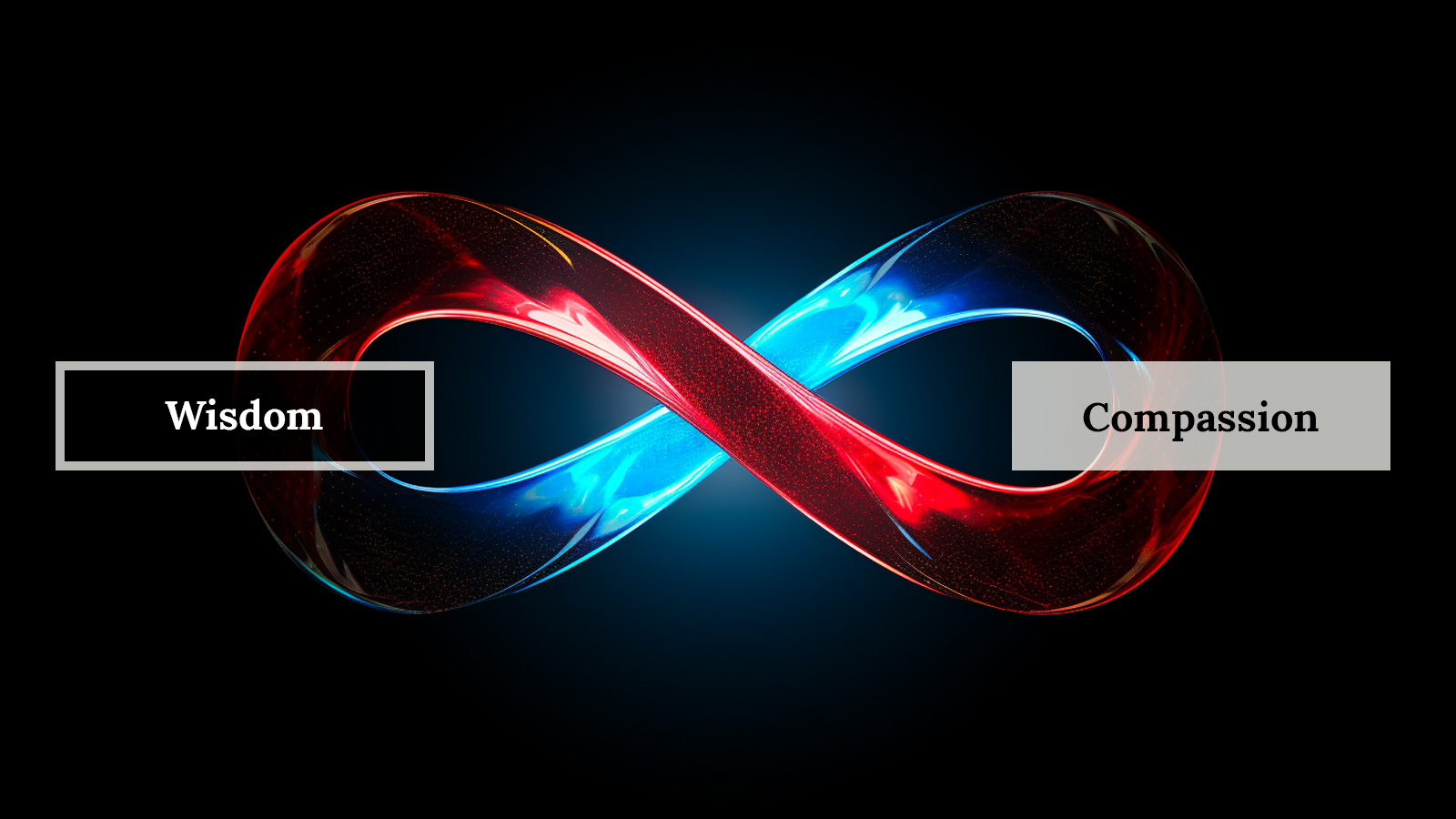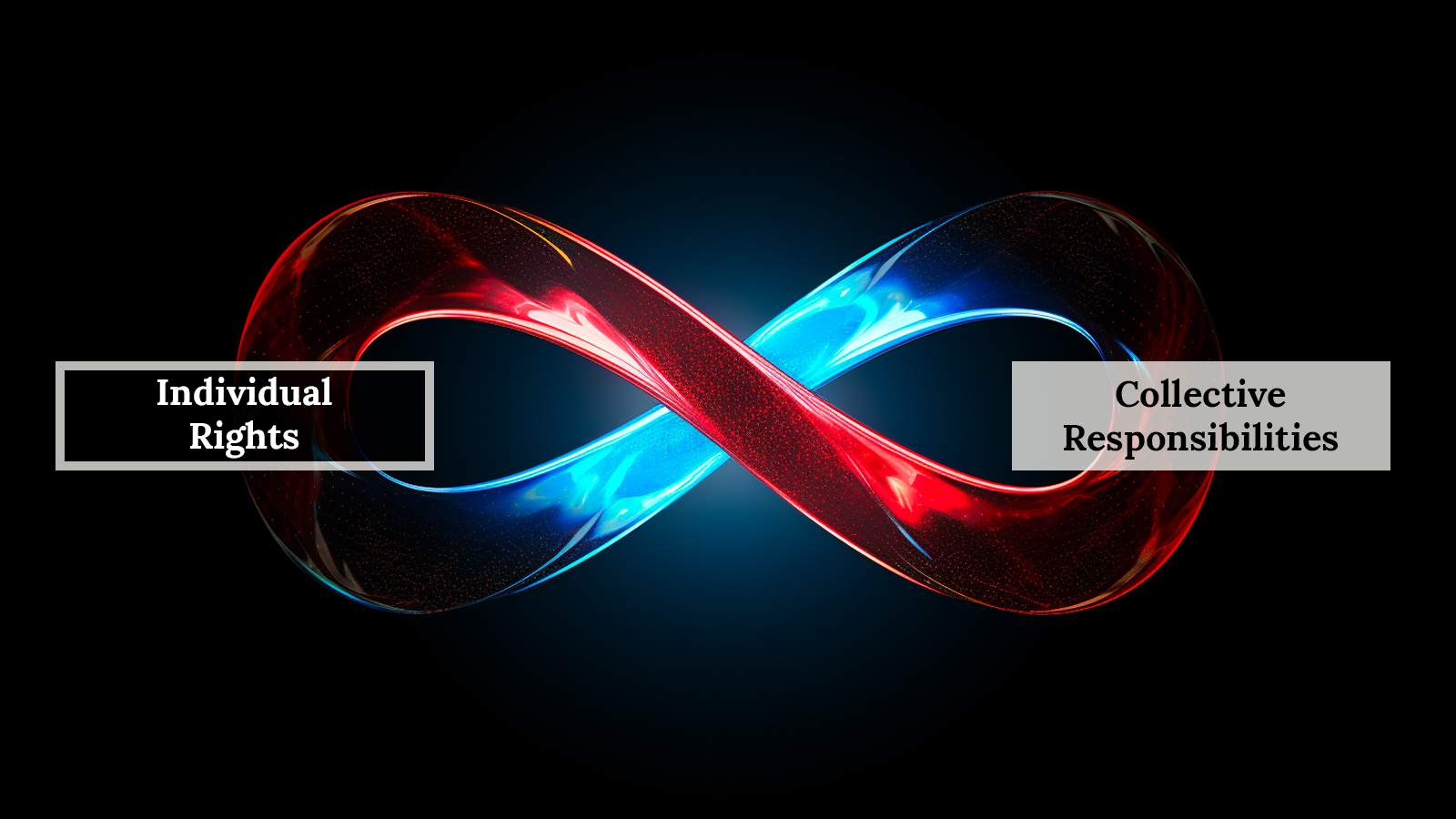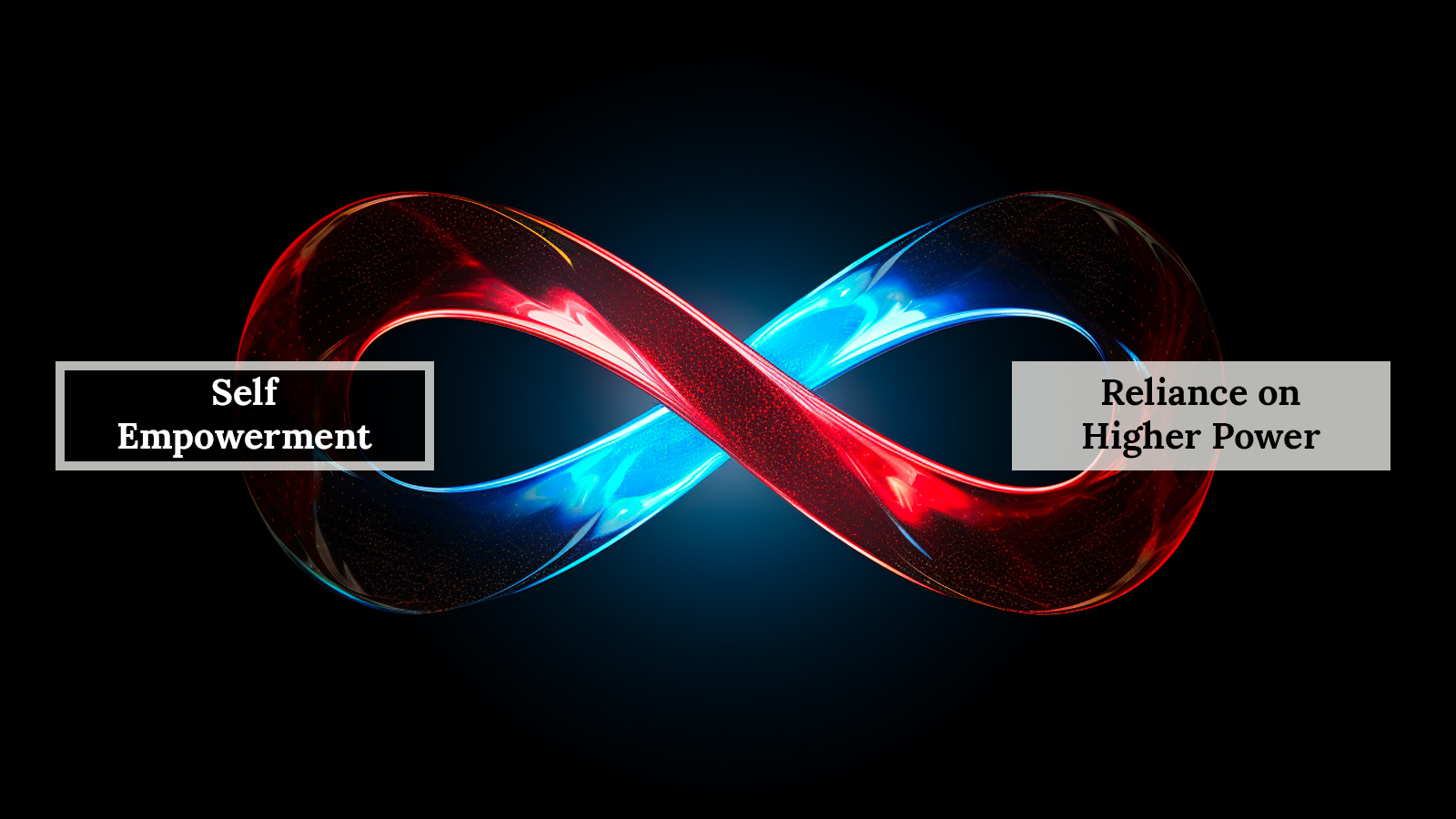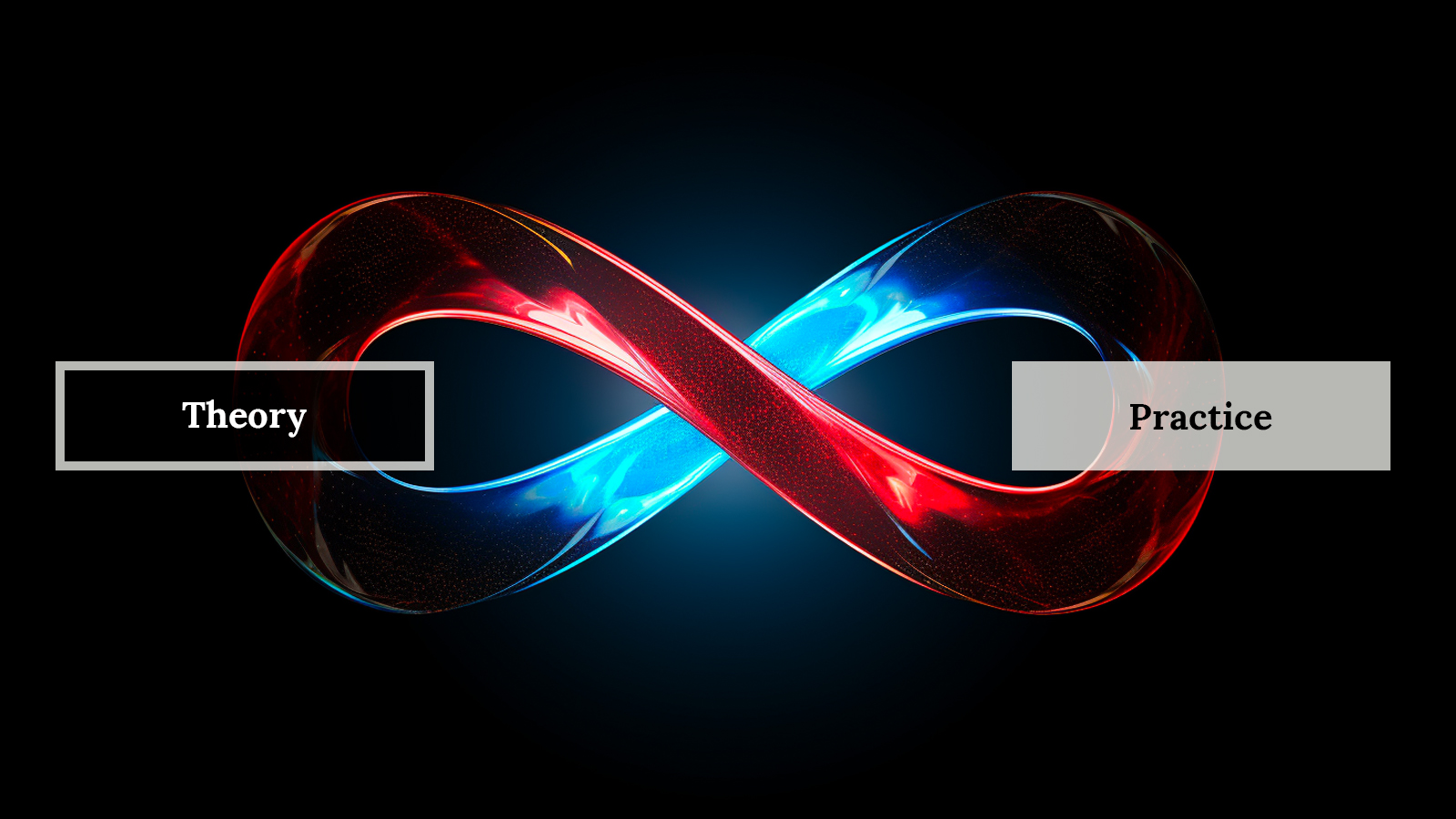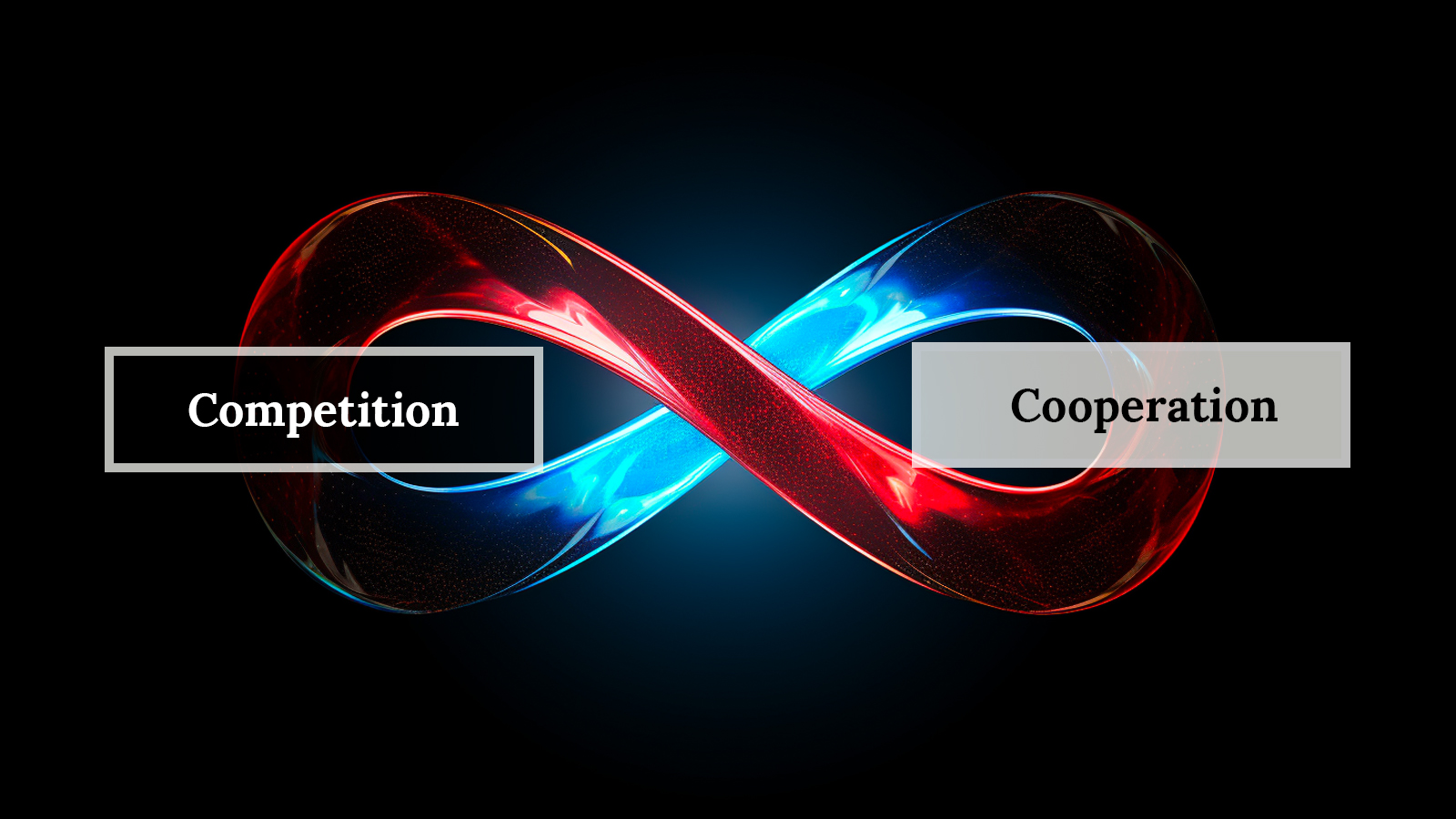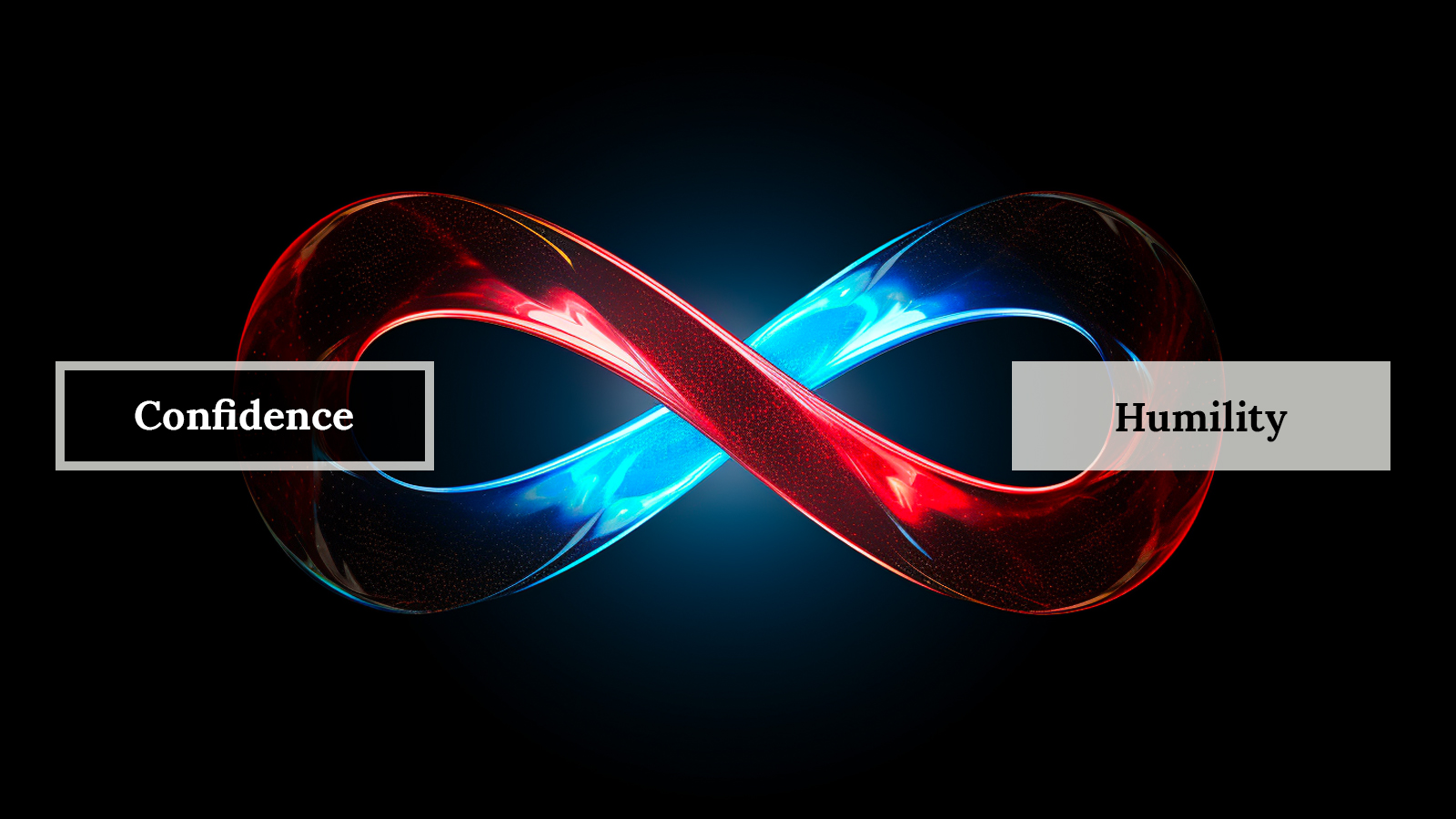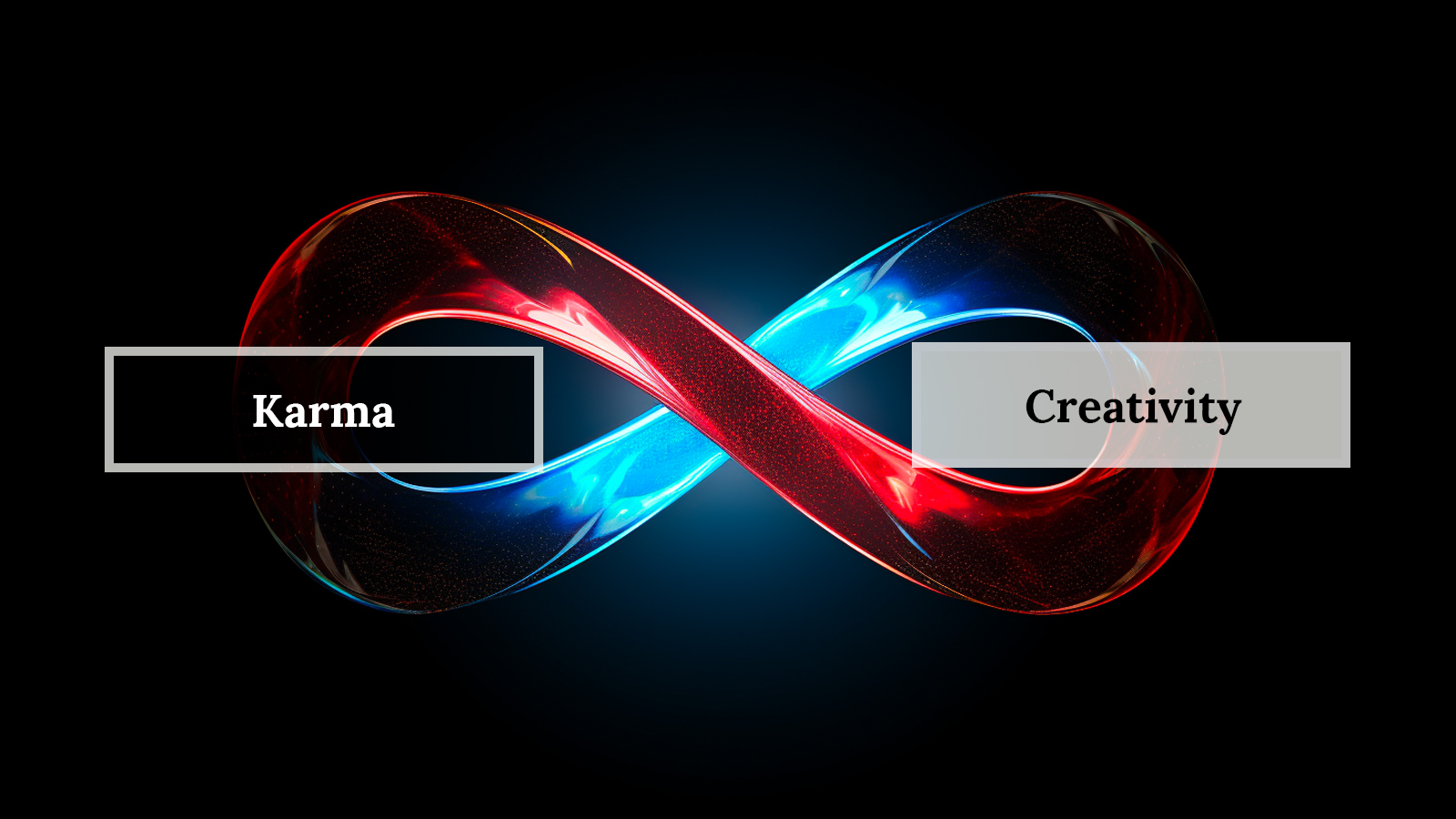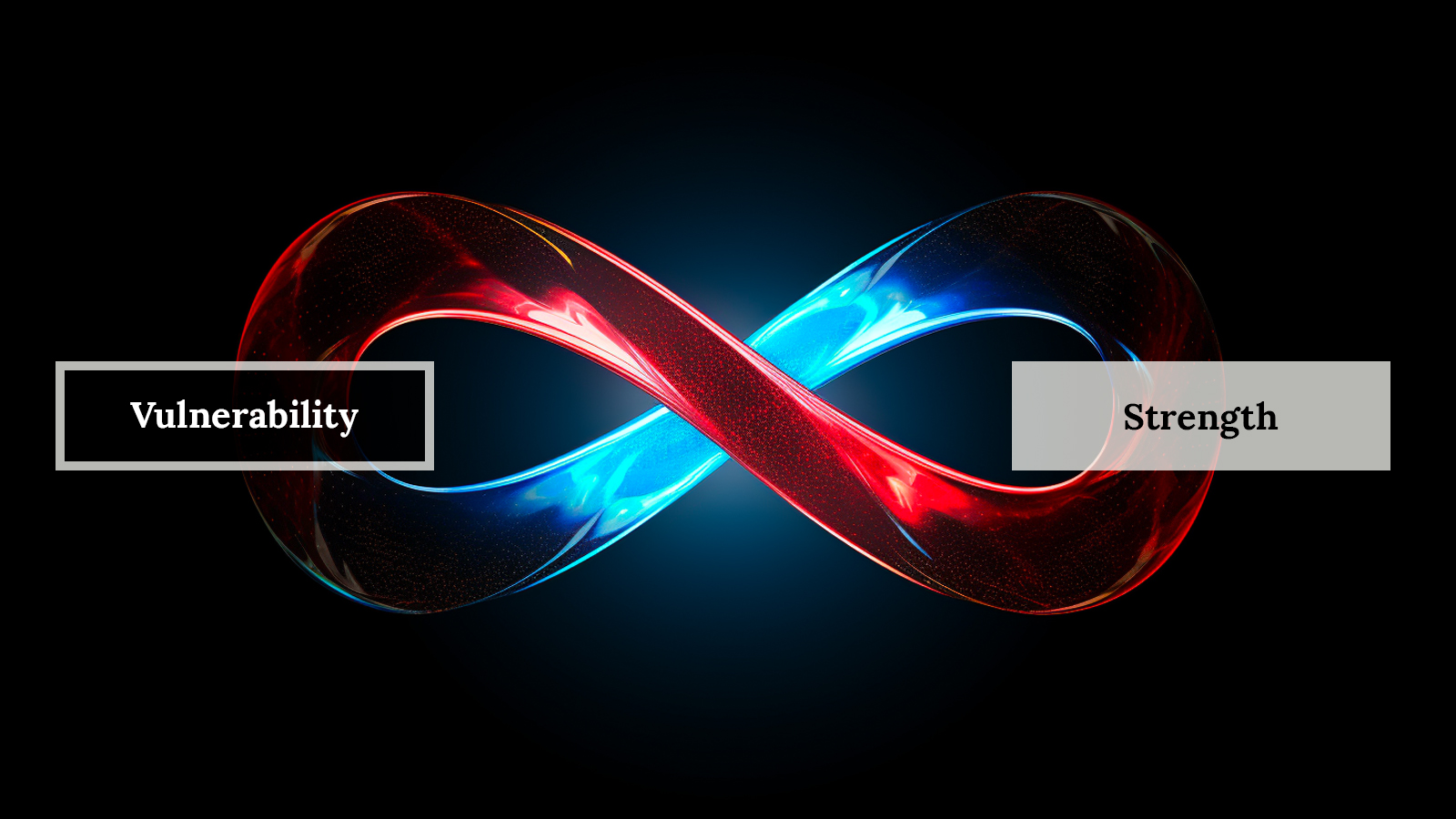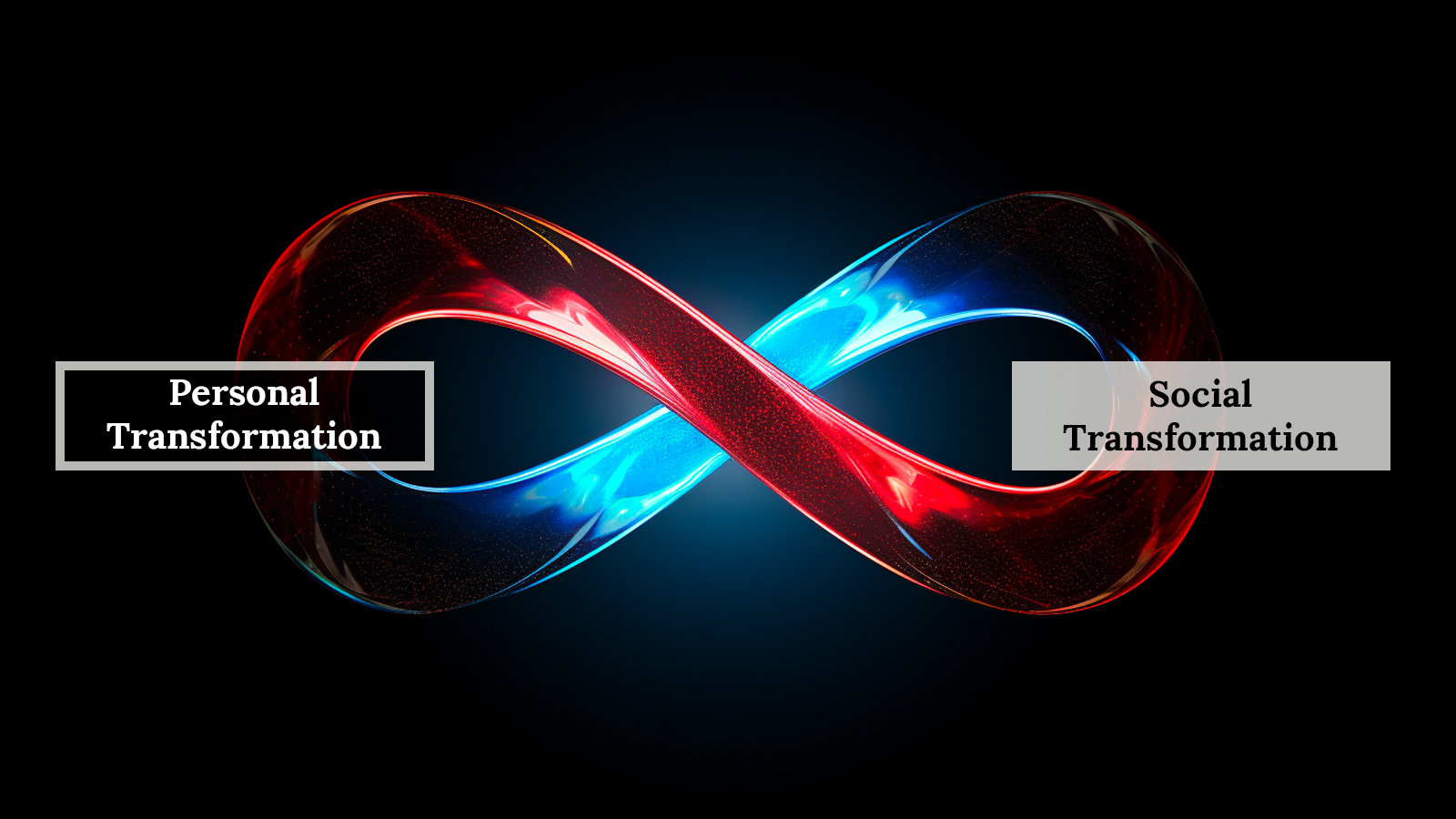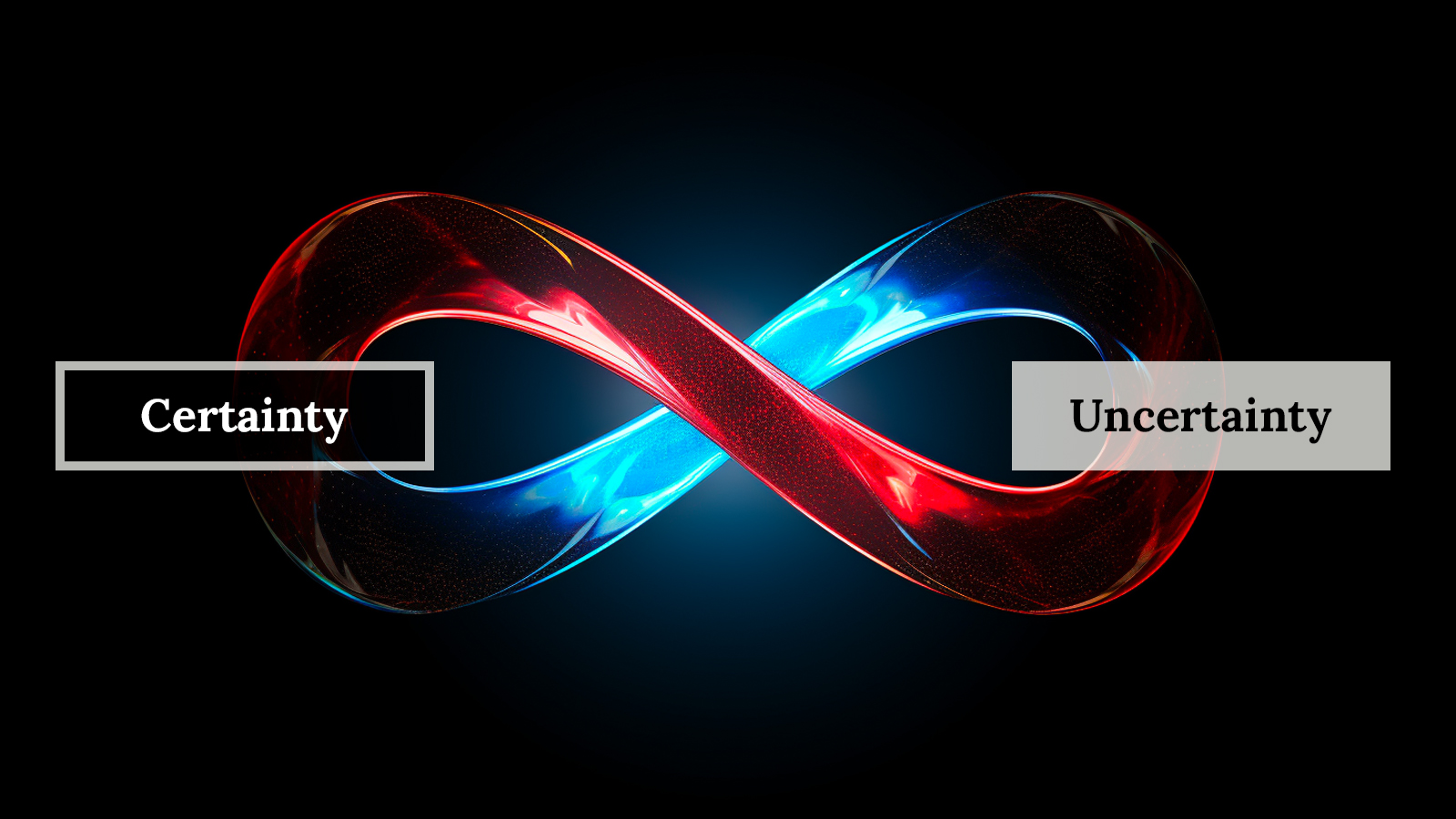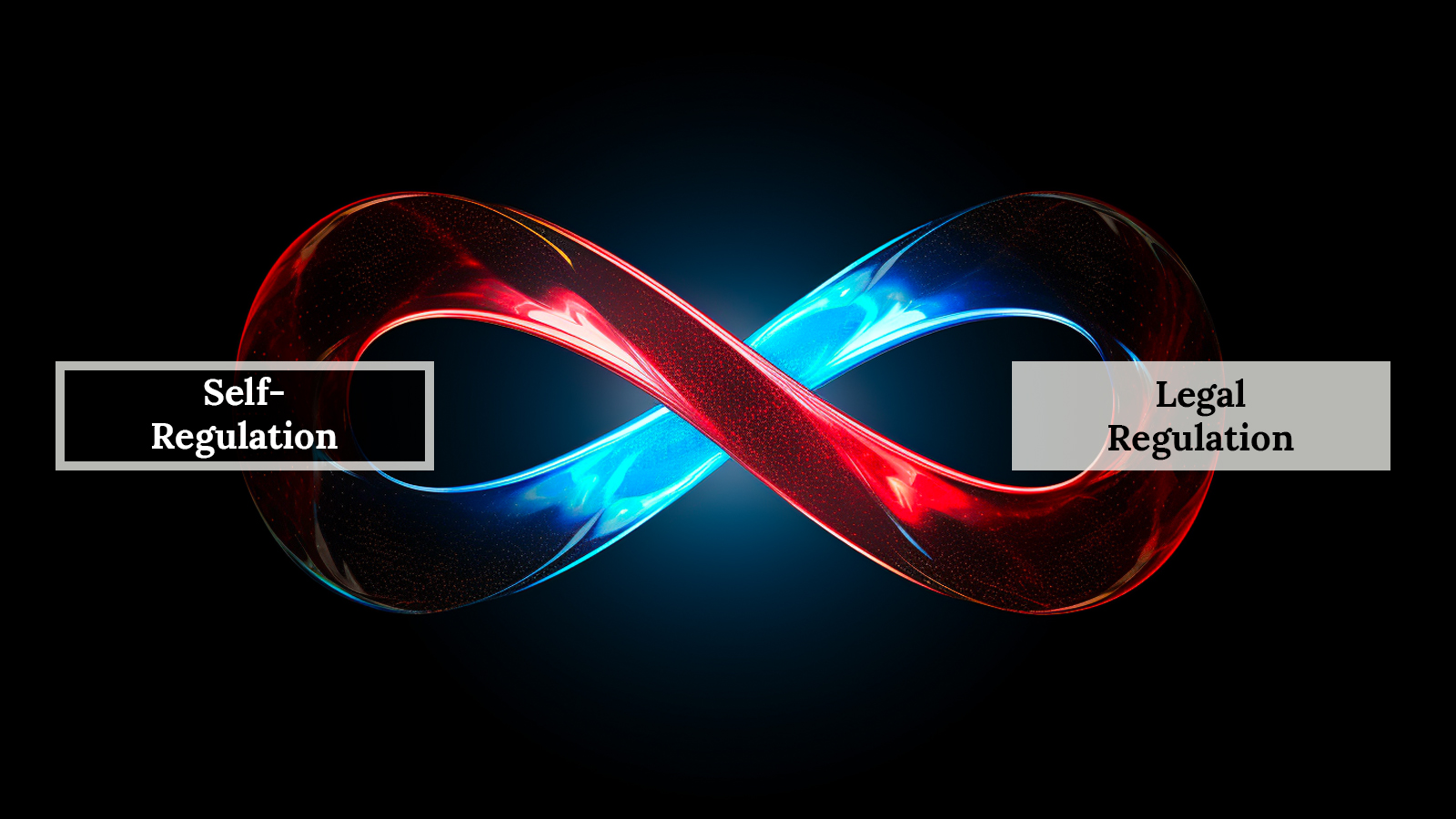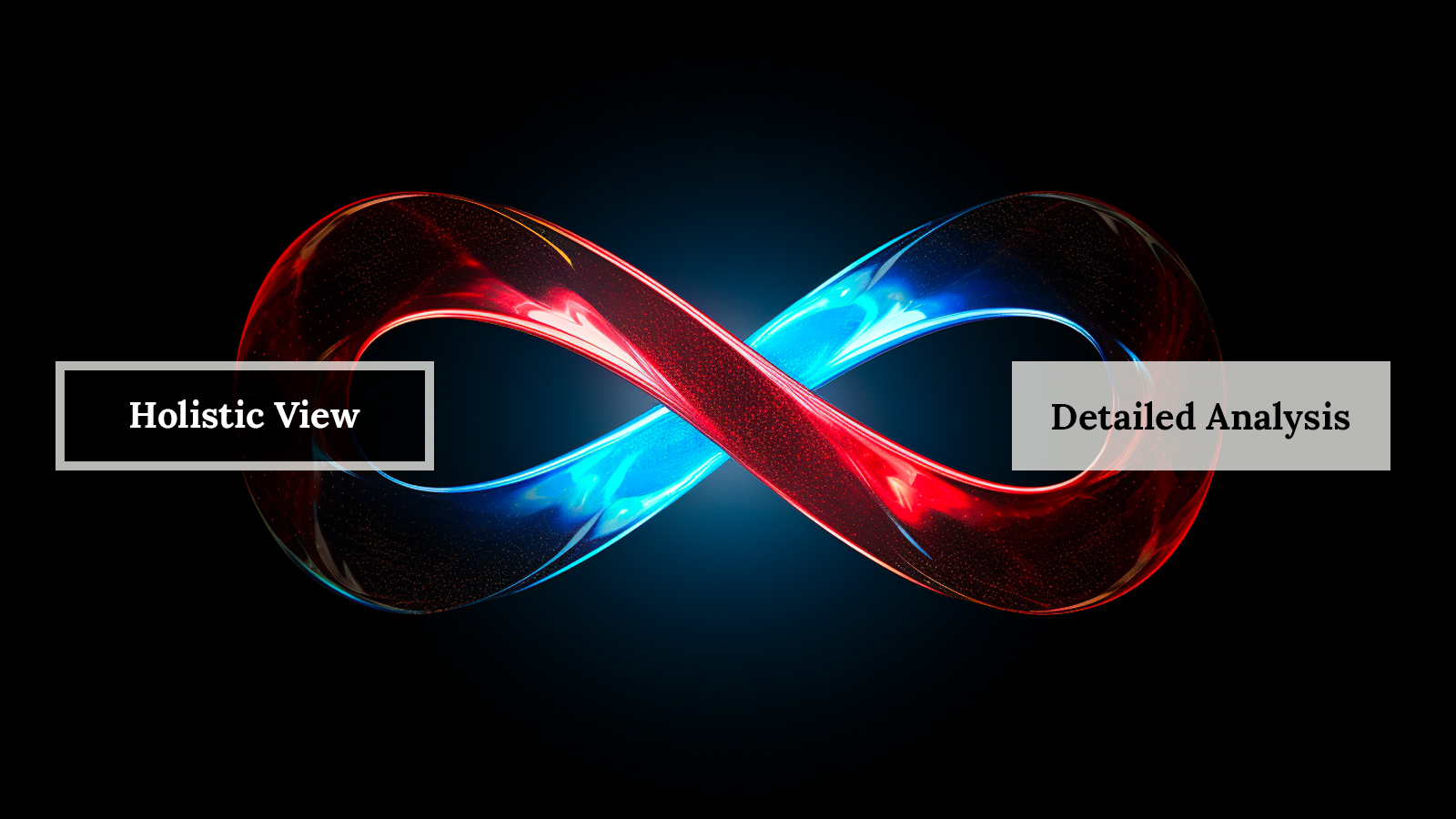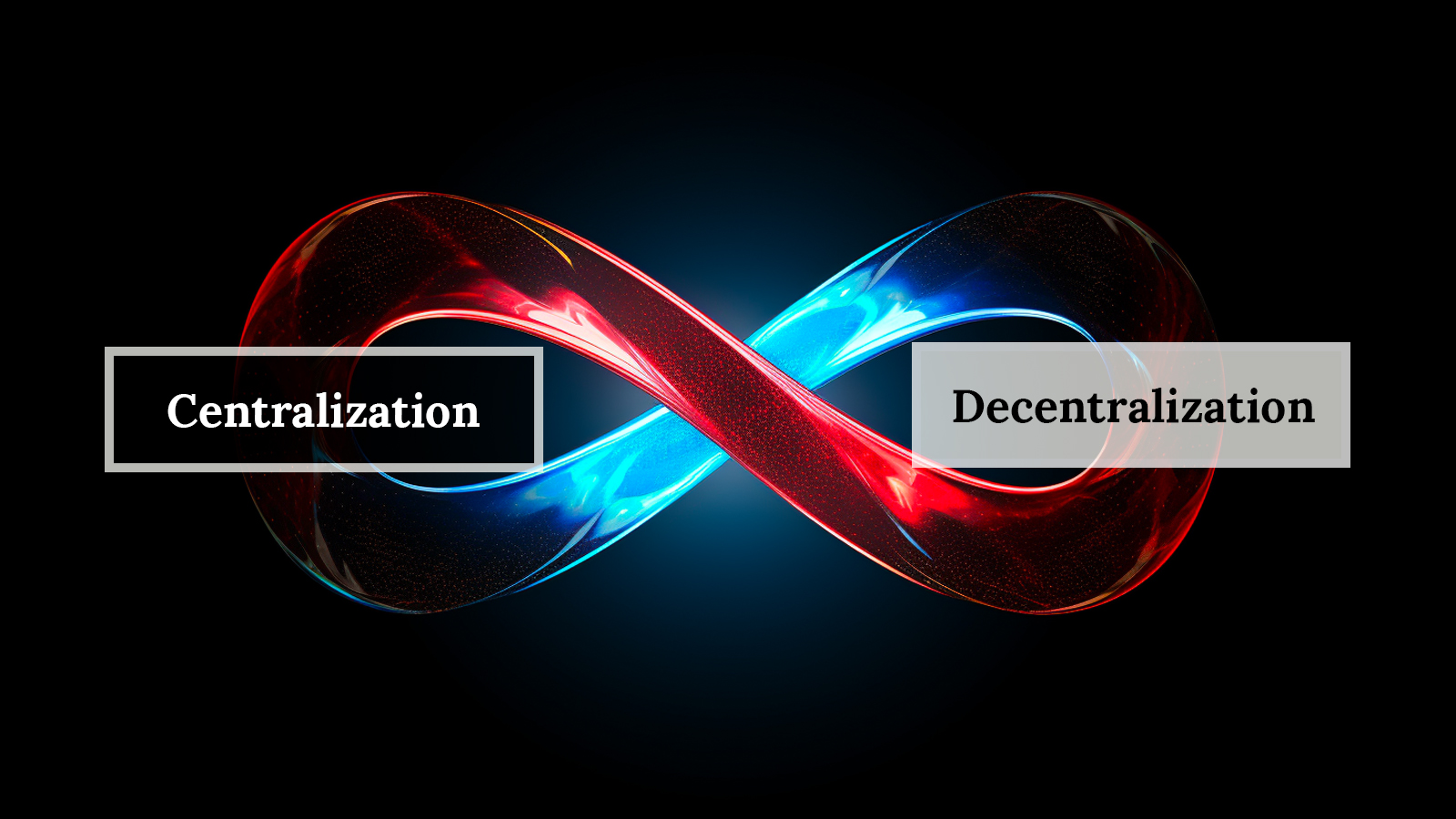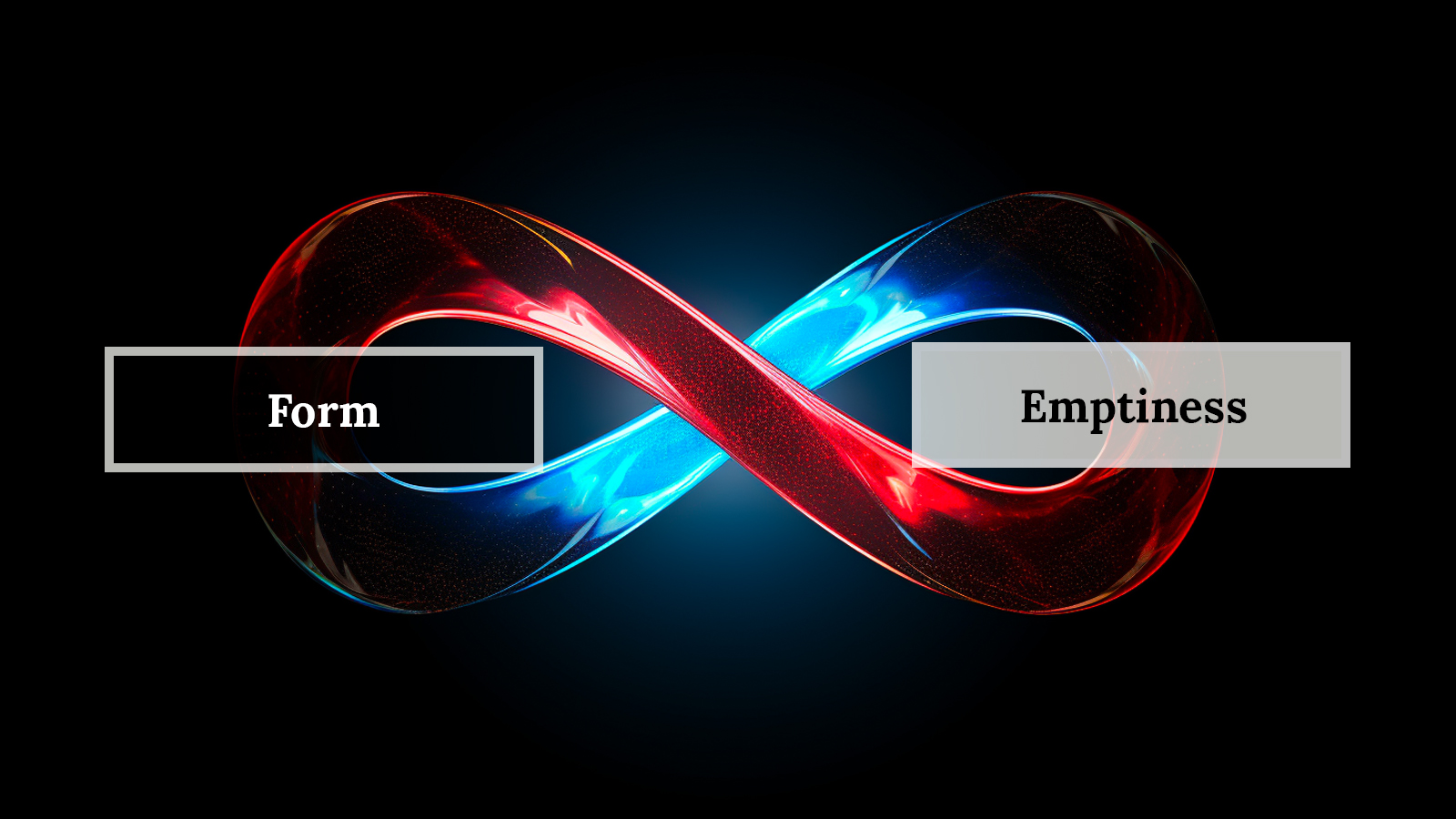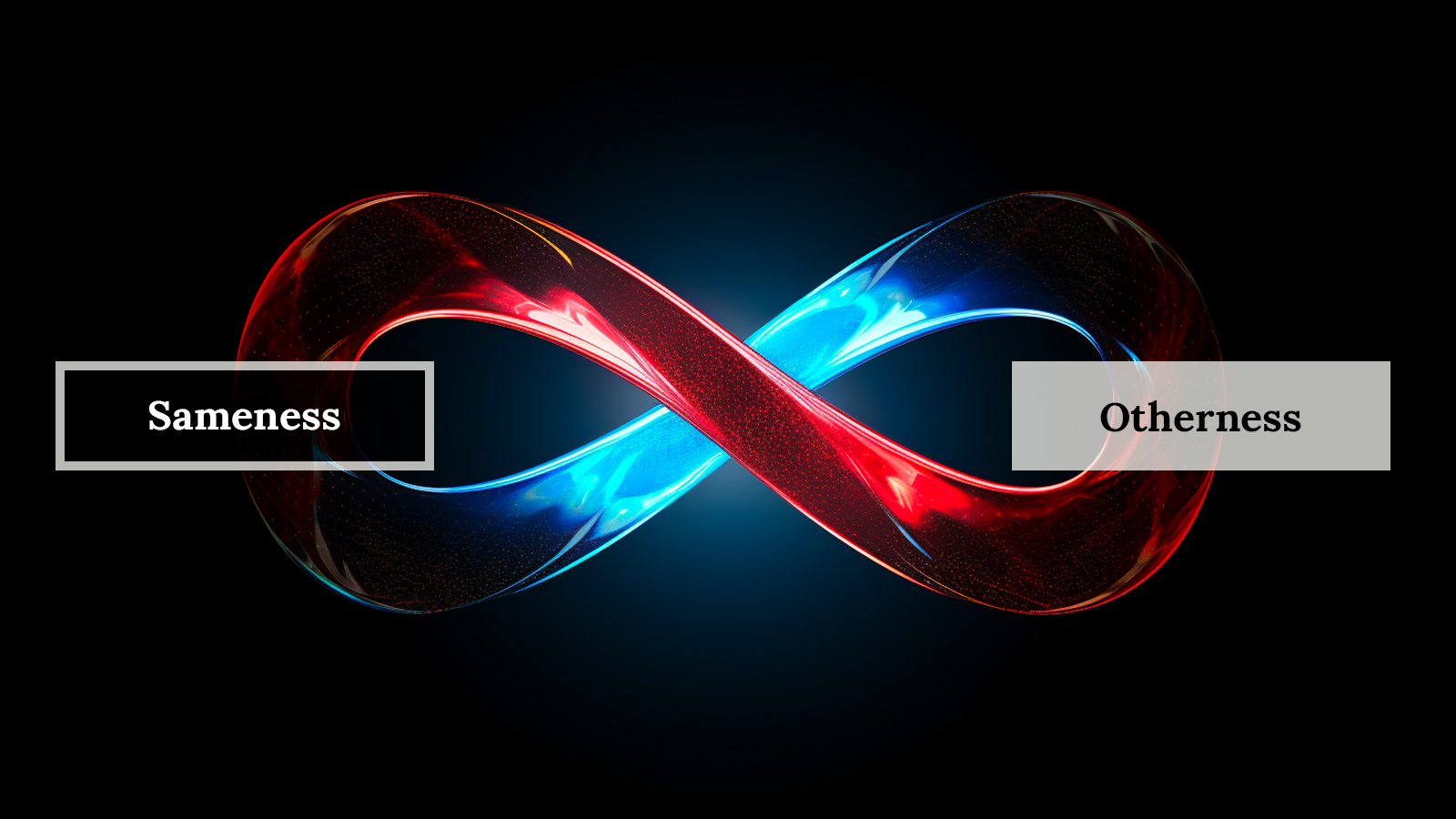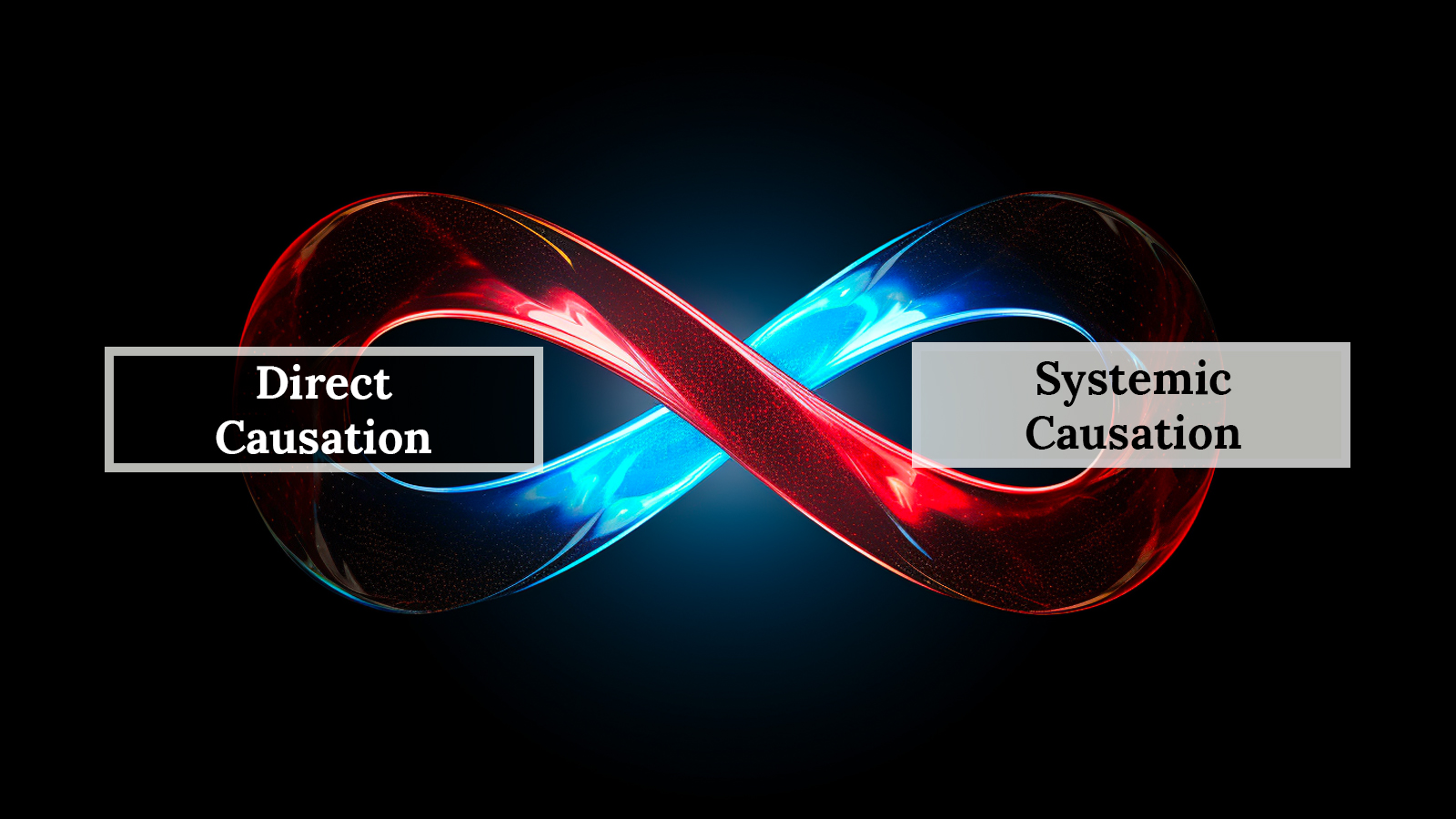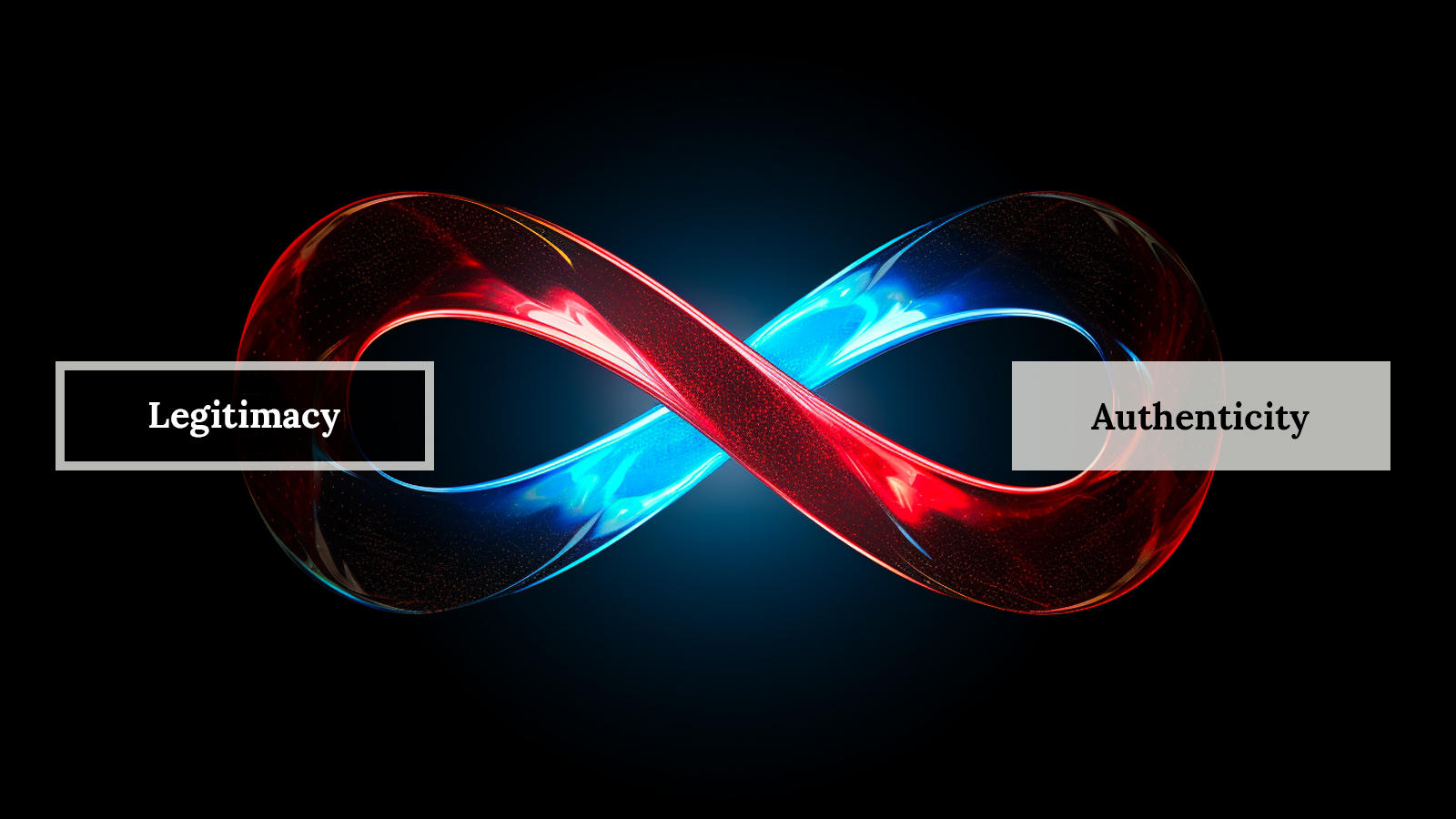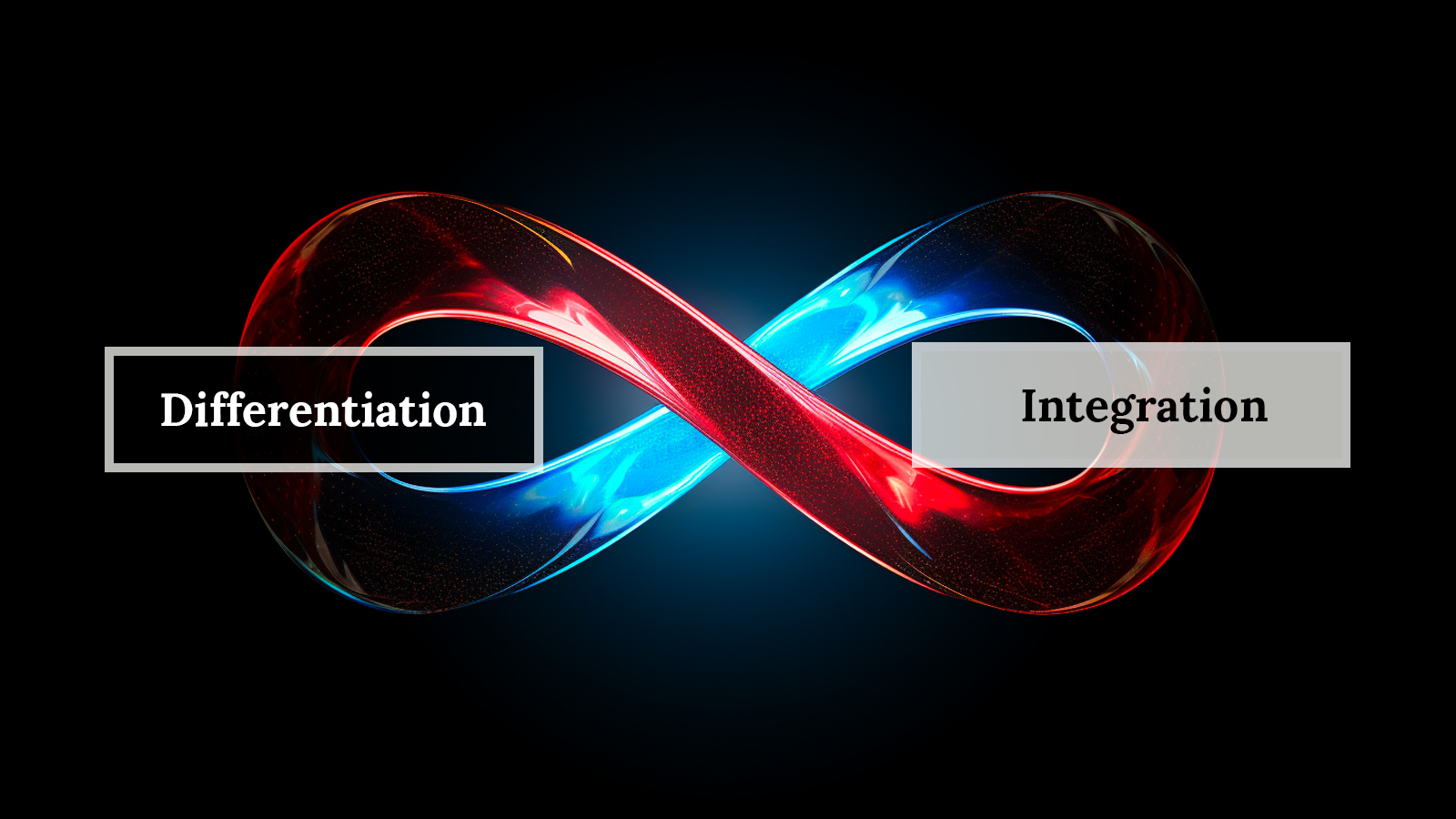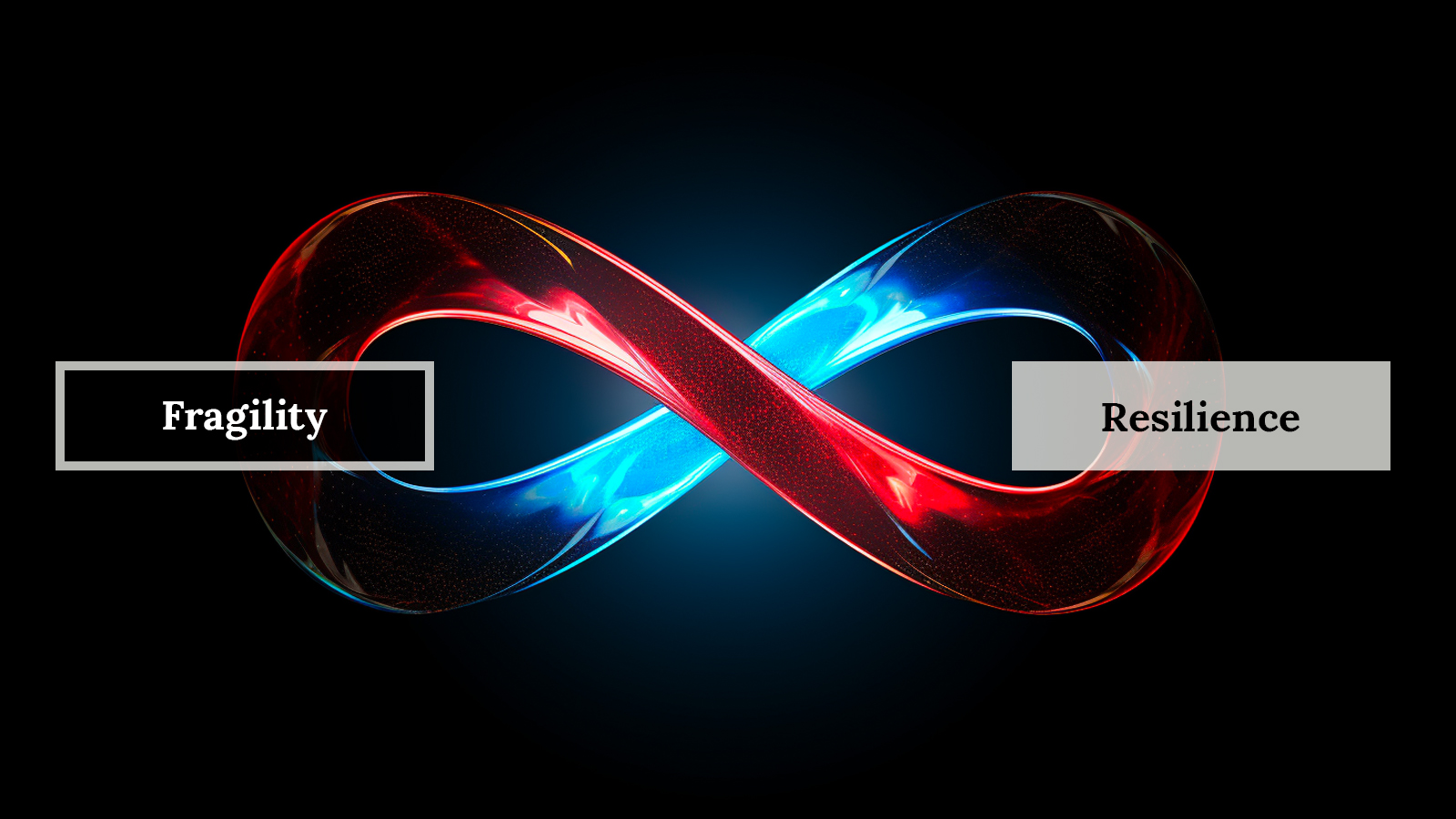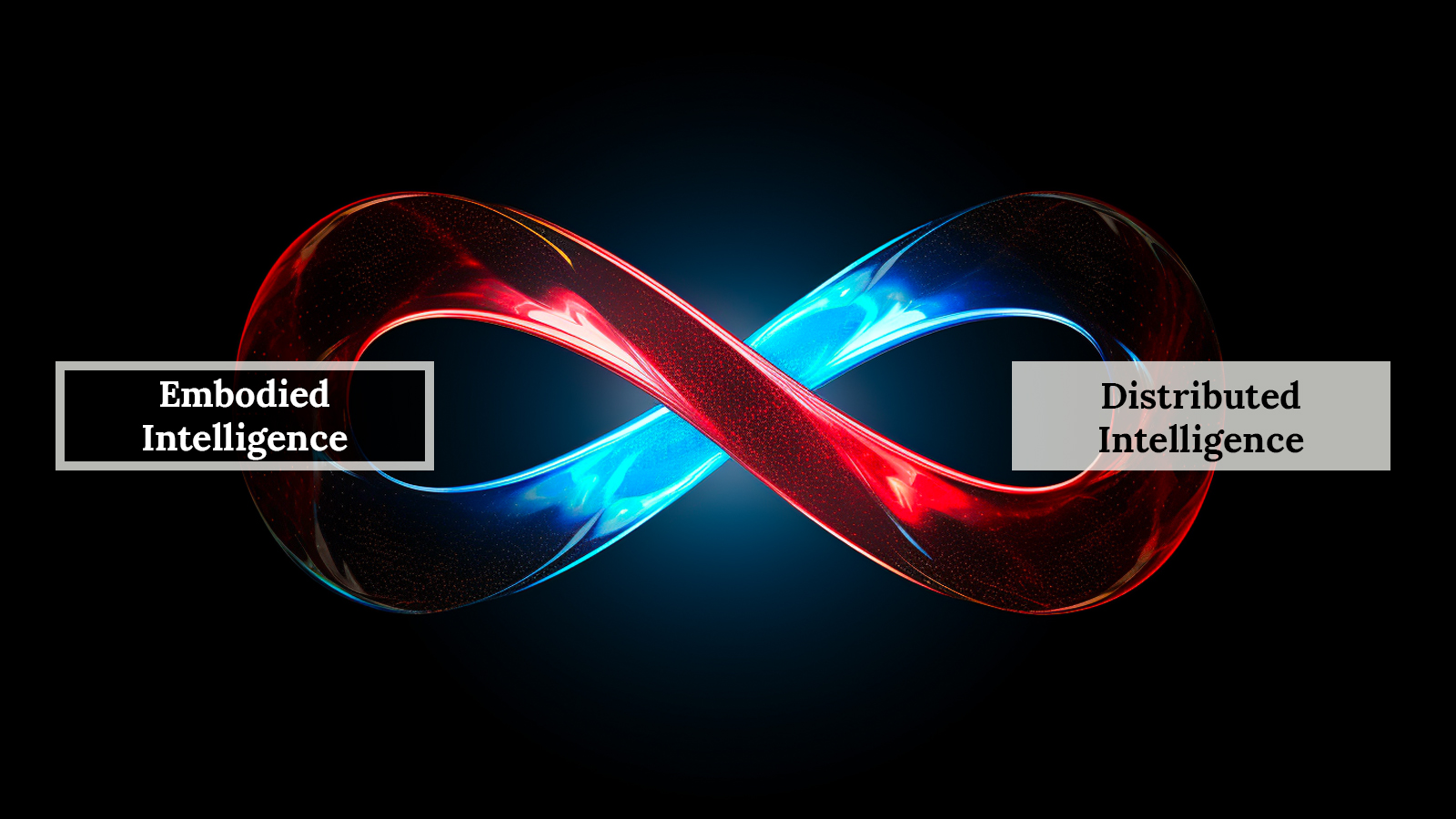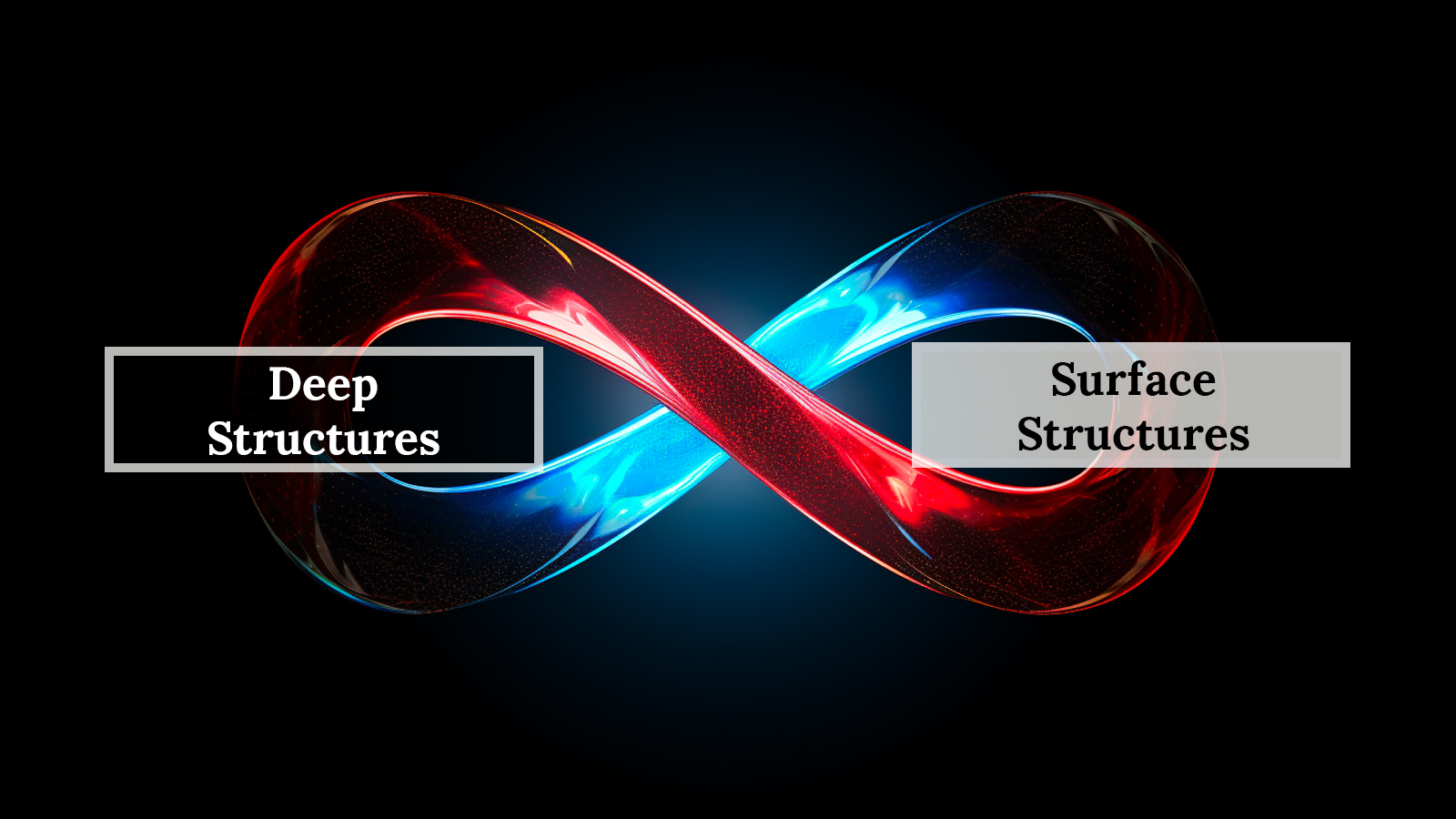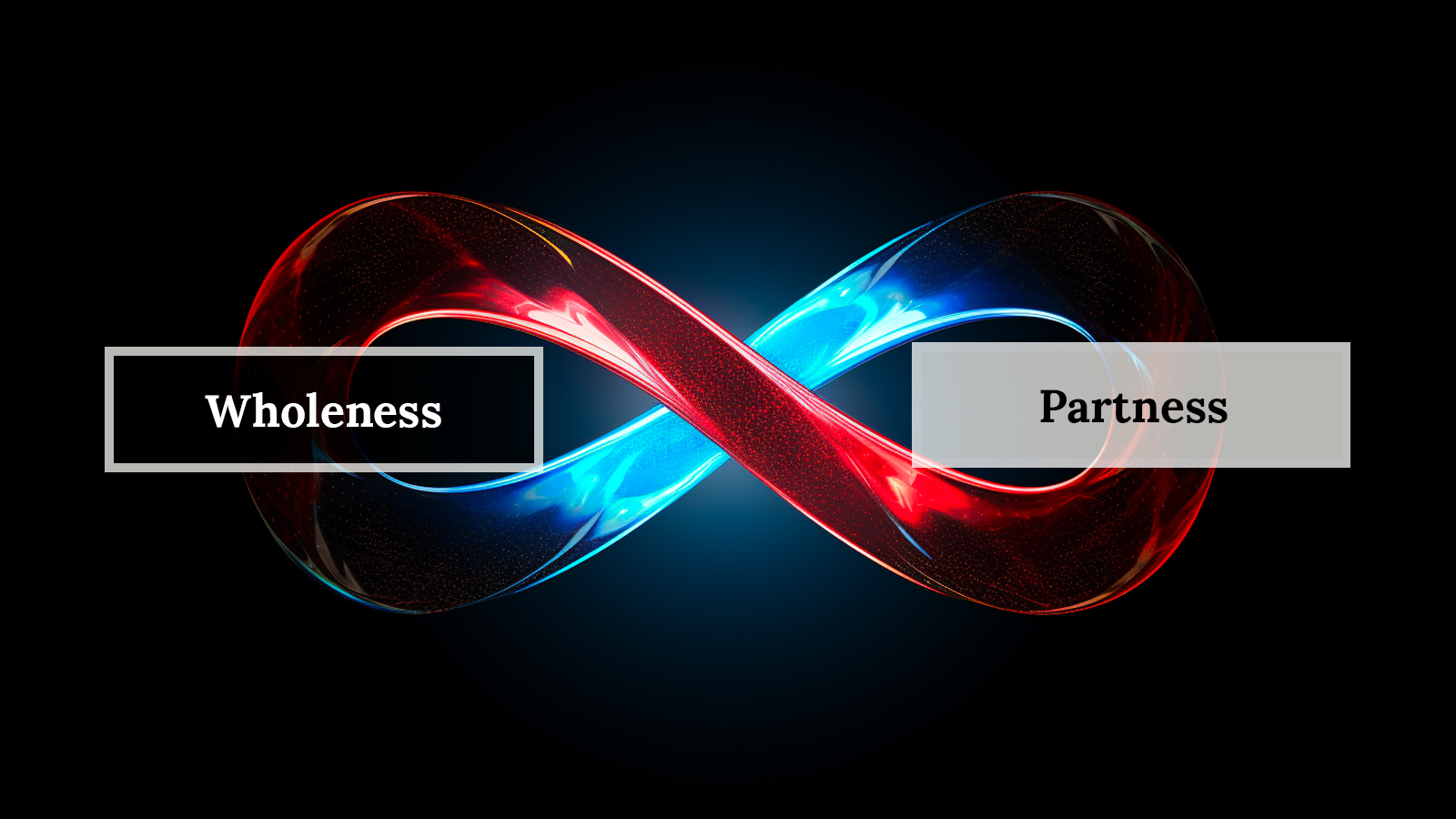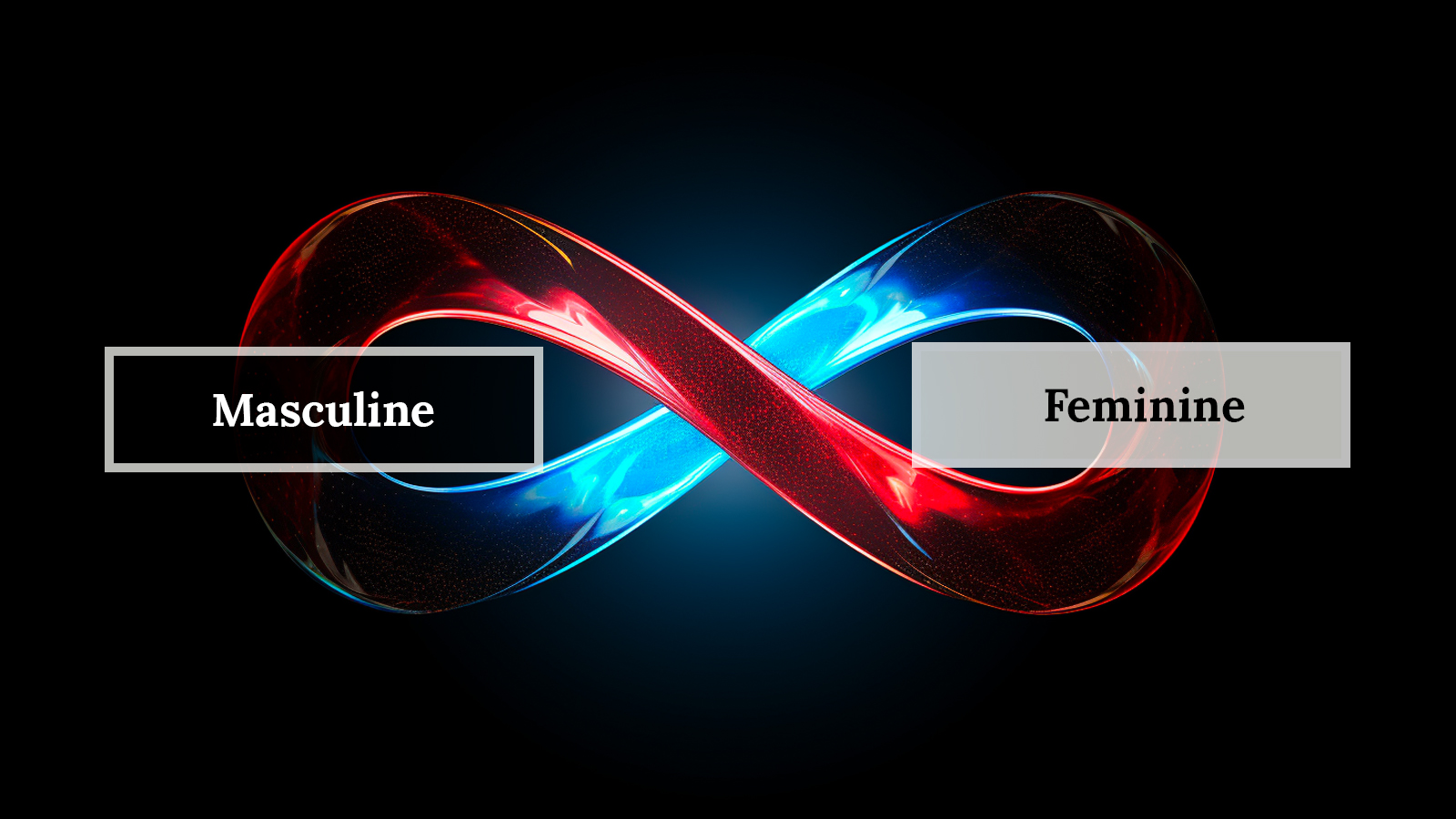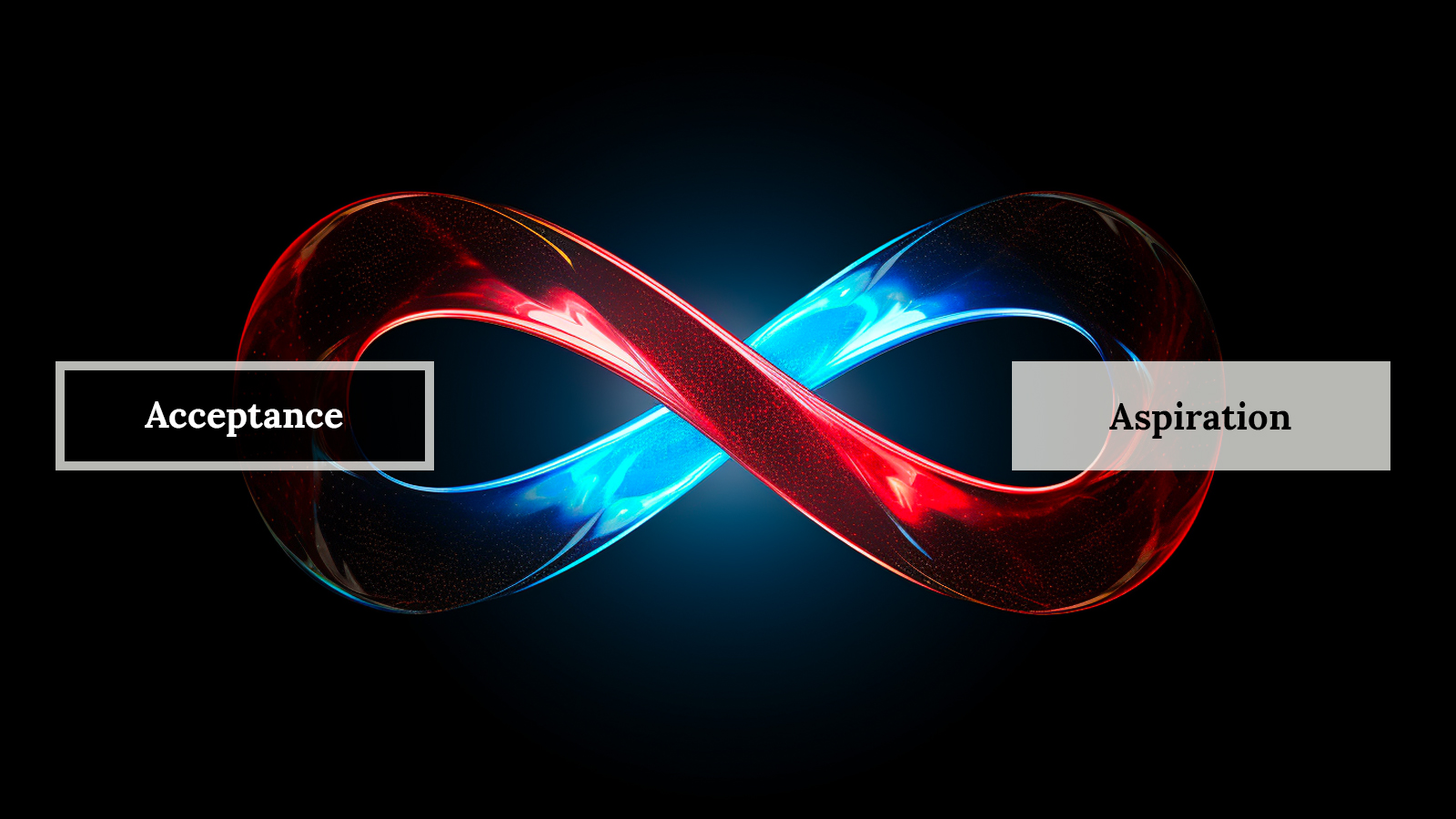|
Polarity
Description |
The Knowledge/Wisdom polarity represents the dynamic interplay between the accumulation of information and facts (knowledge) and the ability to apply that information with discernment, insight, and understanding (wisdom). This polarity encapsulates the multifaceted nature of human cognition and decision-making. Knowledge provides the raw material and foundation for understanding, while wisdom offers the capacity to use that knowledge effectively, ethically, and contextually. Mastering this polarity allows individuals to navigate complex situations with both depth of understanding and practical insight. Knowledge refers to the accumulation of facts, information, and skills acquired through experience or education. It involves the collection and retention of data, concepts, and theories across various domains. Knowledge is characterized by breadth of understanding, specificity of information, and the ability to recall and articulate learned content. It forms the basis for analysis, provides the building blocks for innovation, and enables informed decision-making. Wisdom encompasses the ability to apply knowledge with insight, good judgment, and a deep understanding of underlying principles and contexts. It involves discernment in decision-making, ethical considerations, and the capacity to navigate complex or ambiguous situations. Wisdom is characterized by depth of understanding, holistic thinking, and the ability to synthesize diverse information into meaningful insights. It guides ethical behavior, fosters empathy, and promotes long-term, sustainable solutions. |
|
Integrated
Polarity |
Enlightened Understanding represents the sophisticated integration of knowledge and wisdom, embodying a dynamic synthesis of comprehensive information and insightful application. This emergent quality manifests as a profound capacity to navigate complex challenges with both depth of knowledge and breadth of wisdom. Individuals embodying Enlightened Understanding demonstrate a remarkable ability to absorb and process vast amounts of information while simultaneously discerning the most relevant and impactful ways to apply that knowledge.
In this integrated state, the accumulation of knowledge continuously informs and refines wisdom, while wisdom guides the pursuit and application of knowledge. This integration fosters a unique form of cognitive flexibility, where individuals can move fluidly between detailed analysis and holistic synthesis, between empirical rigor and intuitive insight. Enlightened Understanding cultivates a balanced approach to learning and decision-making. It allows for the appreciation of specialized expertise while recognizing the importance of interdisciplinary connections. This integration supports authentic leadership that can leverage deep knowledge to inspire and guide while remaining open to new information and perspectives. Moreover, this synthesis enhances one’s capacity for innovation and problem-solving. By combining extensive knowledge with wise discernment, individuals can generate novel solutions that are both grounded in facts and sensitive to broader contexts and long-term implications. The ability to integrate detailed information with big-picture understanding allows for more comprehensive and effective approaches to complex global challenges. Enlightened Understanding also fosters a deep sense of humility and ongoing curiosity. It recognizes that while one may possess significant knowledge and wisdom, there is always more to learn and understand. This promotes a lifelong commitment to growth and learning, balanced with the confidence to act decisively based on current understanding. |
|
Disintegrated
Polarity |
Cognitive Dissonance in the context of the Knowledge-Wisdom polarity represents a state of internal conflict where accumulated information fails to align with deeper understanding, or where broad insights lack grounding in concrete facts. This dissonance manifests as a tension between knowing and understanding, creating discomfort and ineffectiveness in decision-making and action. In this unintegrated state, individuals may find themselves trapped in one of two extremes:
The cognitive dissonance arising from this lack of integration can lead to paralysis in decision-making, inconsistent behavior, or a sense of disconnection between one’s thoughts and actions. It may manifest as an inability to explain one’s intuitions with factual evidence, or difficulty in seeing the larger implications of accumulated data. This unintegrated state hampers overall effectiveness and personal growth. It can lead to frustration as individuals sense the gap between their knowledge and their ability to apply it wisely, or between their intuitive understanding and their capacity to articulate or validate it. Overcoming this cognitive dissonance requires active effort to bridge the gap between knowledge and wisdom, integrating factual understanding with broader insights, and grounding abstract concepts in practical application. This process of integration leads towards the harmonized state of Enlightened Understanding, where knowledge and wisdom mutually reinforce and enrich each other. |
|
Tips for
Harmonizing |
To harmonize the Knowledge-Wisdom polarity, focus on creating a rhythm of alternating between information gathering and reflective application. When you find yourself overwhelmed with information, take time to pause and consider how this knowledge can be applied practically or ethically in your life or work. Engage in reflective practices such as journaling or discussion groups to process and contextualize new information. Conversely, if you notice an overemphasis on seeking wisdom or making decisions based on intuition alone, intentionally seek out factual information or expert opinions to ground your insights. This might involve reading research papers, consulting with specialists, or conducting your own data collection and analysis. Regularly assess your learning and decision-making processes. Are you balancing the acquisition of new knowledge with the development of wisdom to apply that knowledge effectively? Are your insights and judgments informed by a solid factual basis? Consider keeping a learning journal where you not only record new information but also reflect on its implications, potential applications, and connections to other knowledge areas. Look for opportunities to apply your knowledge in practical situations, and then reflect on the outcomes to develop wisdom. |
|
Tips for
Integrating |
To fully integrate Knowledge and Wisdom into Enlightened Understanding, focus on practices that simultaneously engage both dimensions. One powerful approach is through case studies or scenario planning exercises that require both detailed knowledge and wise judgment. Start by identifying complex challenges in your field or areas of interest. As you research these challenges, practice “dual-process thinking”: analyze the detailed facts and data (knowledge) while also considering broader implications, ethical considerations, and potential long-term consequences (wisdom). Engage in thought experiments where you apply your knowledge to hypothetical scenarios, then reflect on the reasoning behind your decisions. Develop a practice of “intellectual cross-training.” Regularly expose yourself to ideas and information outside your primary areas of expertise. Then, look for connections and applications between these diverse fields of knowledge. This practice enhances both your knowledge base and your ability to synthesize information wisely. Engage in collaborative learning and problem-solving exercises. Seek out diverse groups where you can share your knowledge and benefit from others’ wisdom, and vice versa. This might involve joining interdisciplinary research teams, participating in think tanks, or engaging in community problem-solving initiatives. In terms of Integral Life Practice, this integration naturally addresses the cognitive line of development. To create a comprehensive practice, ensure you’re including elements that develop emotional intelligence (to wisely navigate the affective aspects of knowledge application), body awareness (recognizing the embodied aspects of knowing and deciding), and spiritual or existential understanding (to provide a broader context for the pursuit and application of knowledge). Cultivate a practice of “epistemic humility” – maintaining an awareness of the limitations of your knowledge and the provisional nature of wisdom. This involves regularly questioning your assumptions, seeking out disconfirming evidence, and remaining open to updating your understanding as new information or perspectives emerge. Remember, the goal is not to achieve a static perfect balance of knowledge and wisdom, but to develop the dynamic capacity to engage both as needed, allowing each to inform and enhance the other. This integration supports a more holistic and effective approach to learning, decision-making, and problem-solving, enhancing your ability to navigate and contribute to an increasingly complex world. |
Related Media
Awaken Your Integral Heart
Brad Reynolds
In this profound presentation by Brad Reynolds, we explore the essence of integral consciousness and its implications for personal and societal transformation. Delving deep into the heart’s role in spiritual awakening, the conversation emphasizes the interconnectedness of the head, heart, body, and spirit, with the breath as a conduit for circulating spiritual energy. The discussion touches upon the rich tapestry of human development, drawing from the wisdom of ancient traditions and modern integral thought. Brad’s emphasis on love as a transformative force is particularly moving, with the assertion that to truly be integral, one must embody love.
Recommended Training
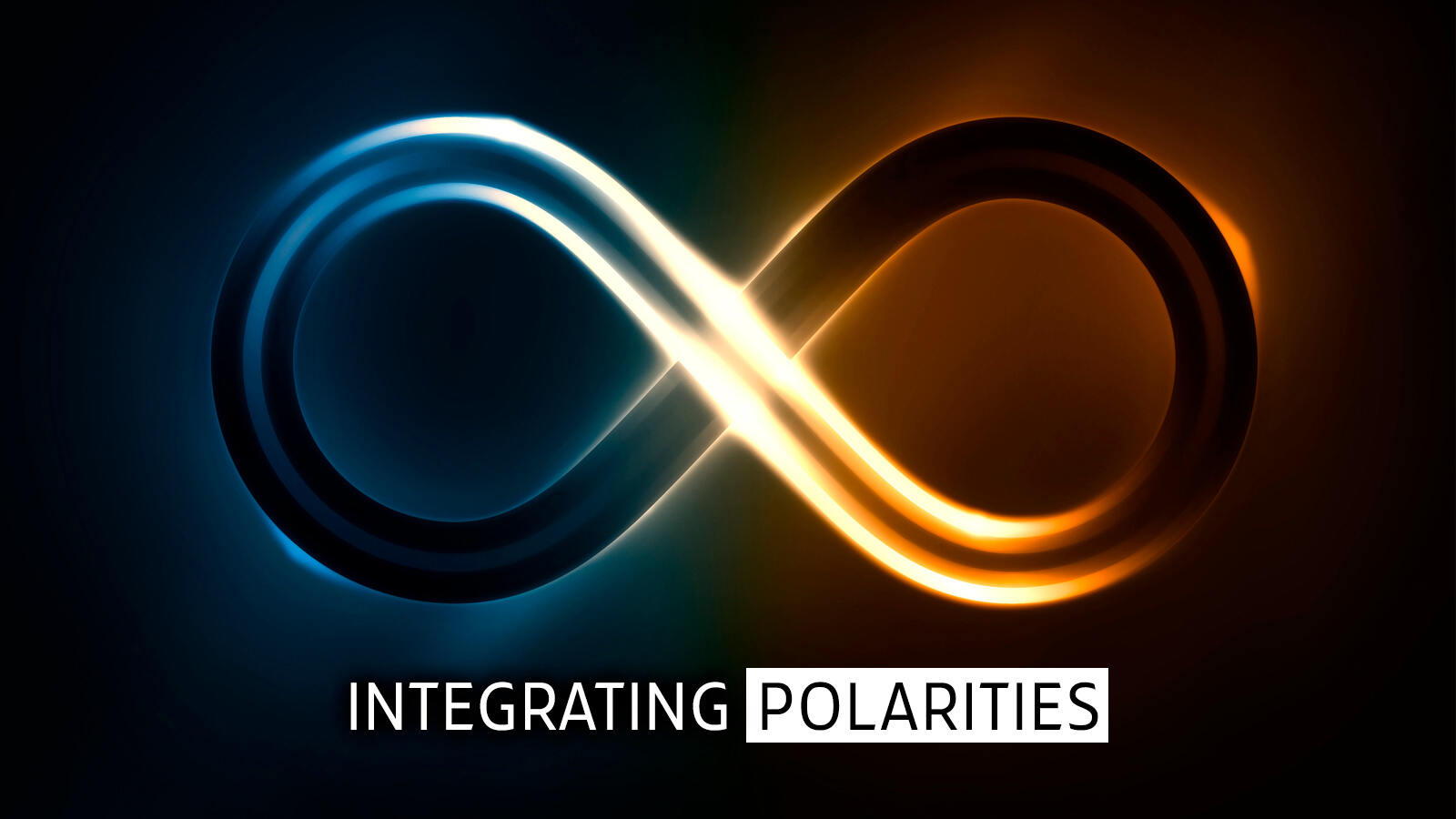
with Beena Sharma
Integrating Polarities is a revolutionary new training program by Beena Sharma, designed to teach you the higher-order thinking common to leading-edge individuals at the integral stage of development. This training is designed to model the higher-order thinking associated with integral stages of psychological maturity, offering you a step-by-step process to help you learn these thinking skills and apply them to your life, your relationships, and your work in the world.
Enroll Now
More Polarity Maps
About Corey deVos
Corey W. deVos is editor and producer of Integral Life. He has worked for Integral Institute/Integal Life since Spring of 2003, and has been a student of integral theory and practice since 1996. Corey is also a professional woodworker, and many of his artworks can be found in his VisionLogix art gallery.

